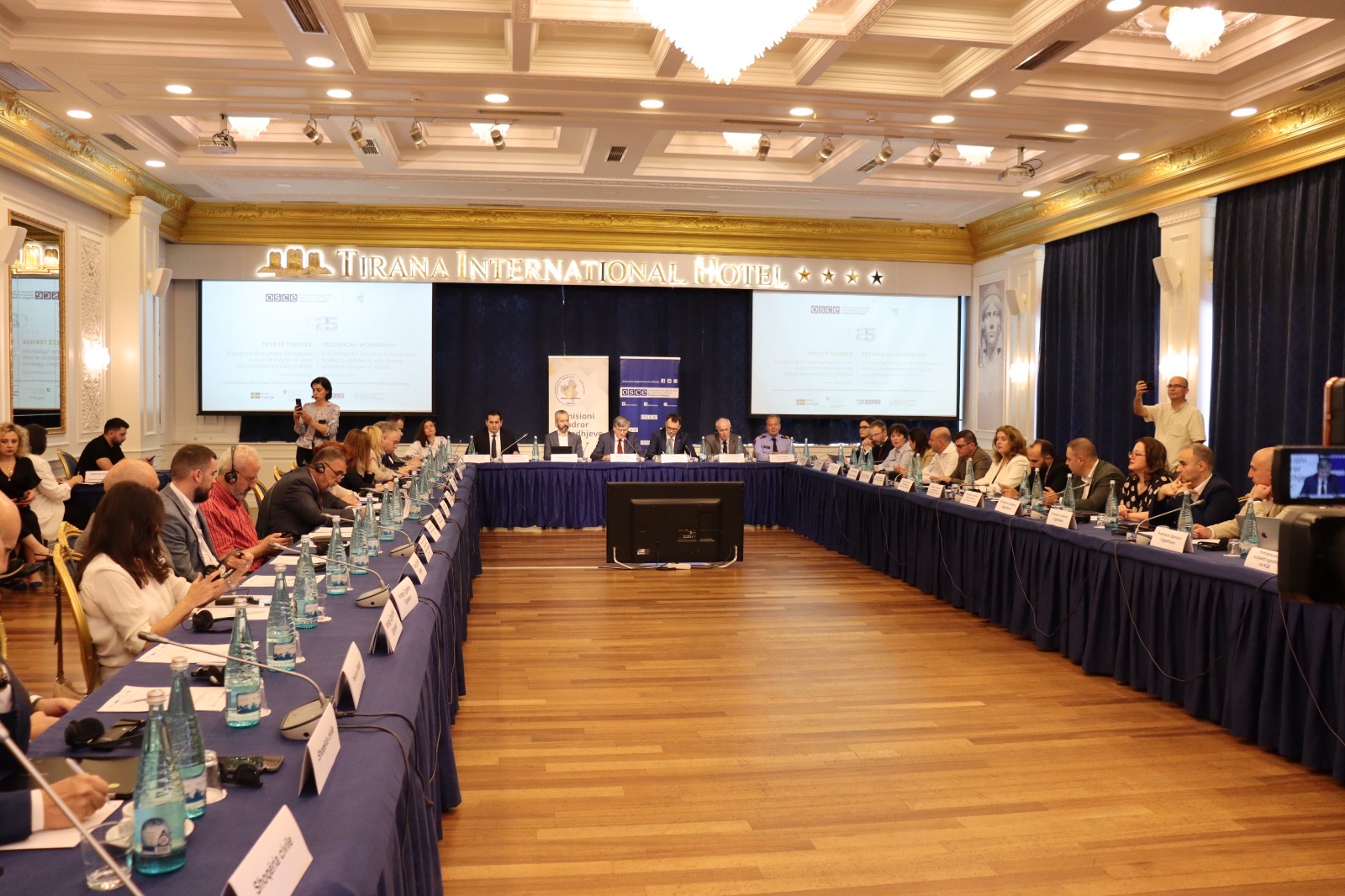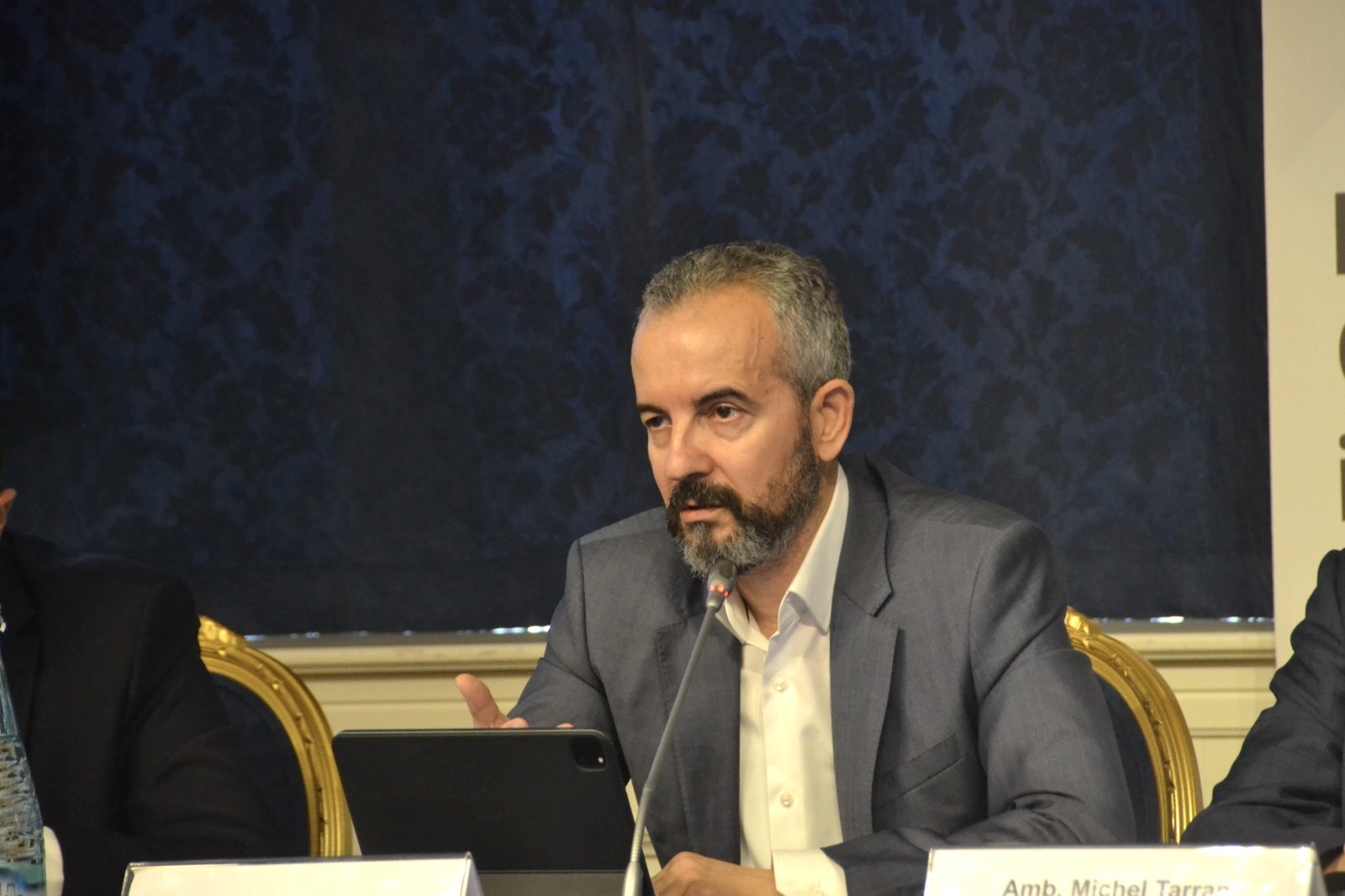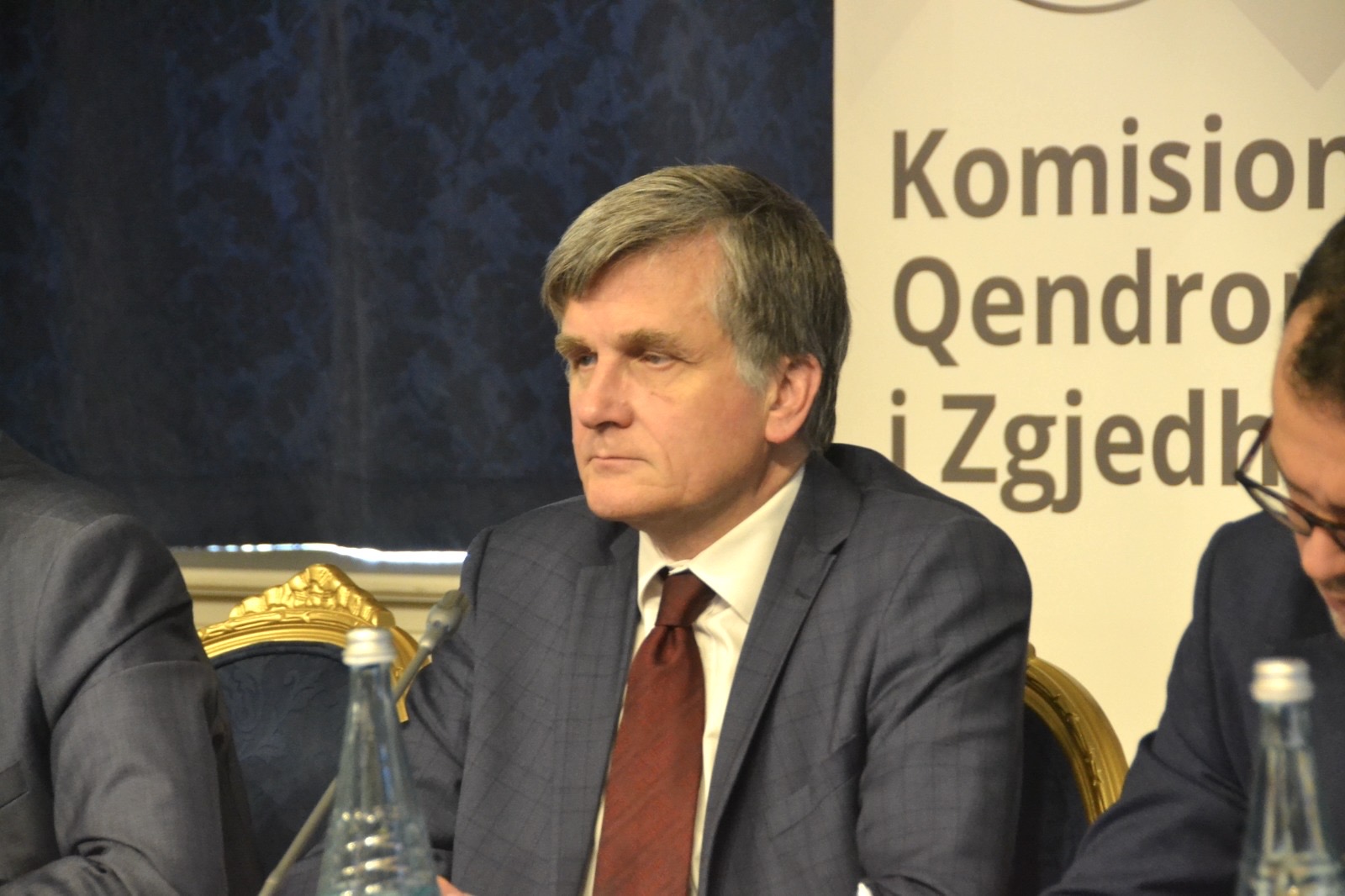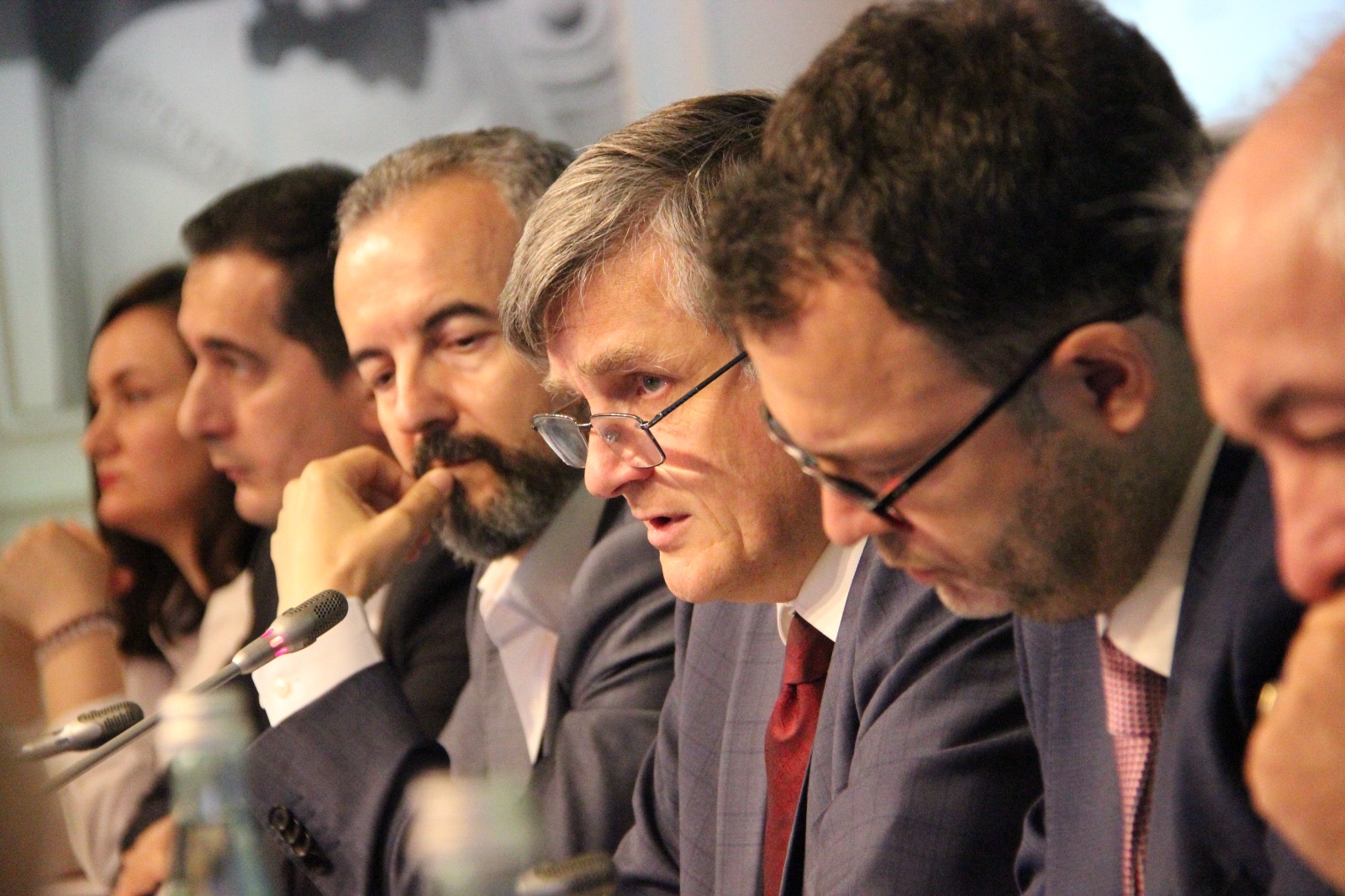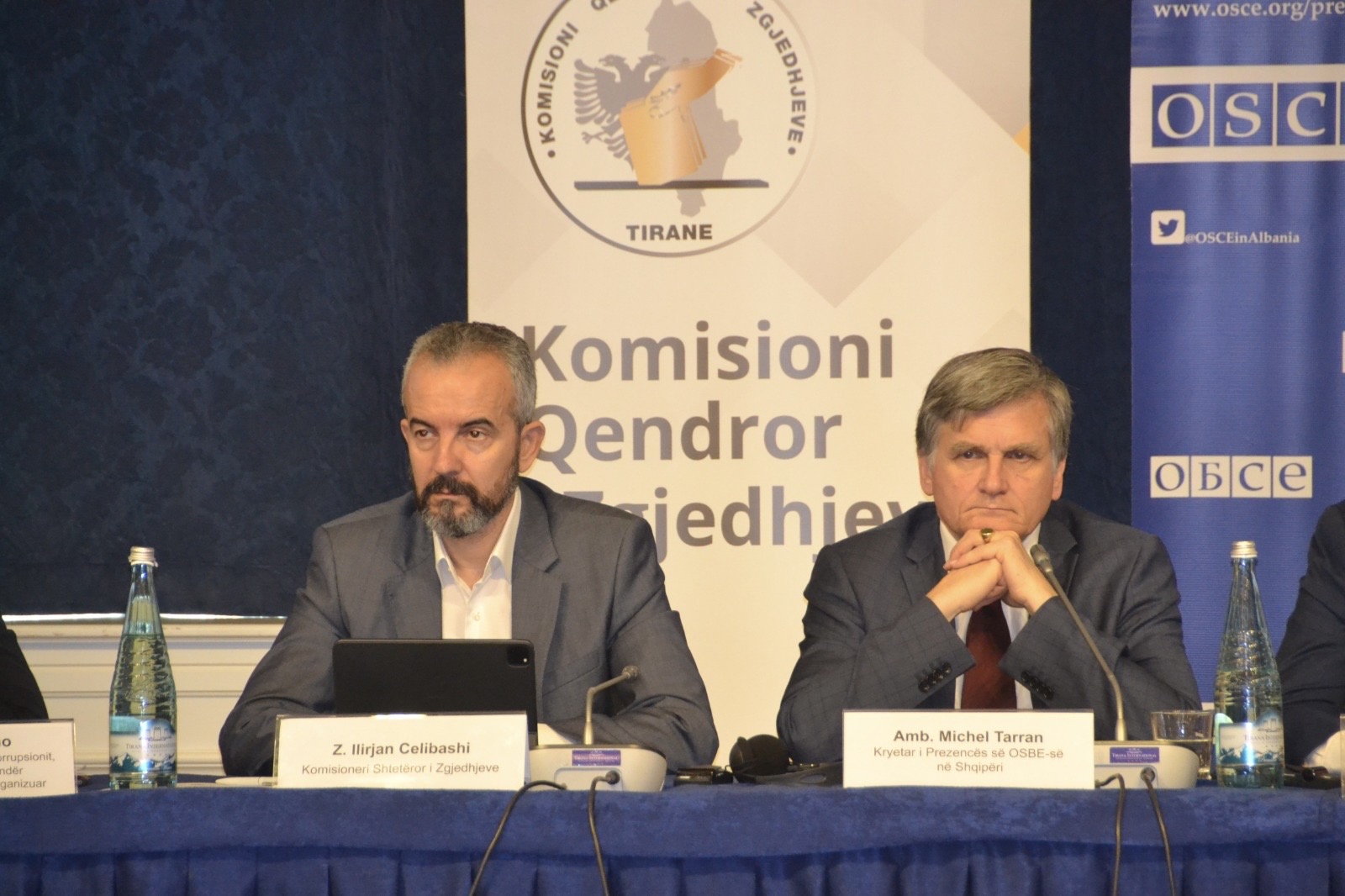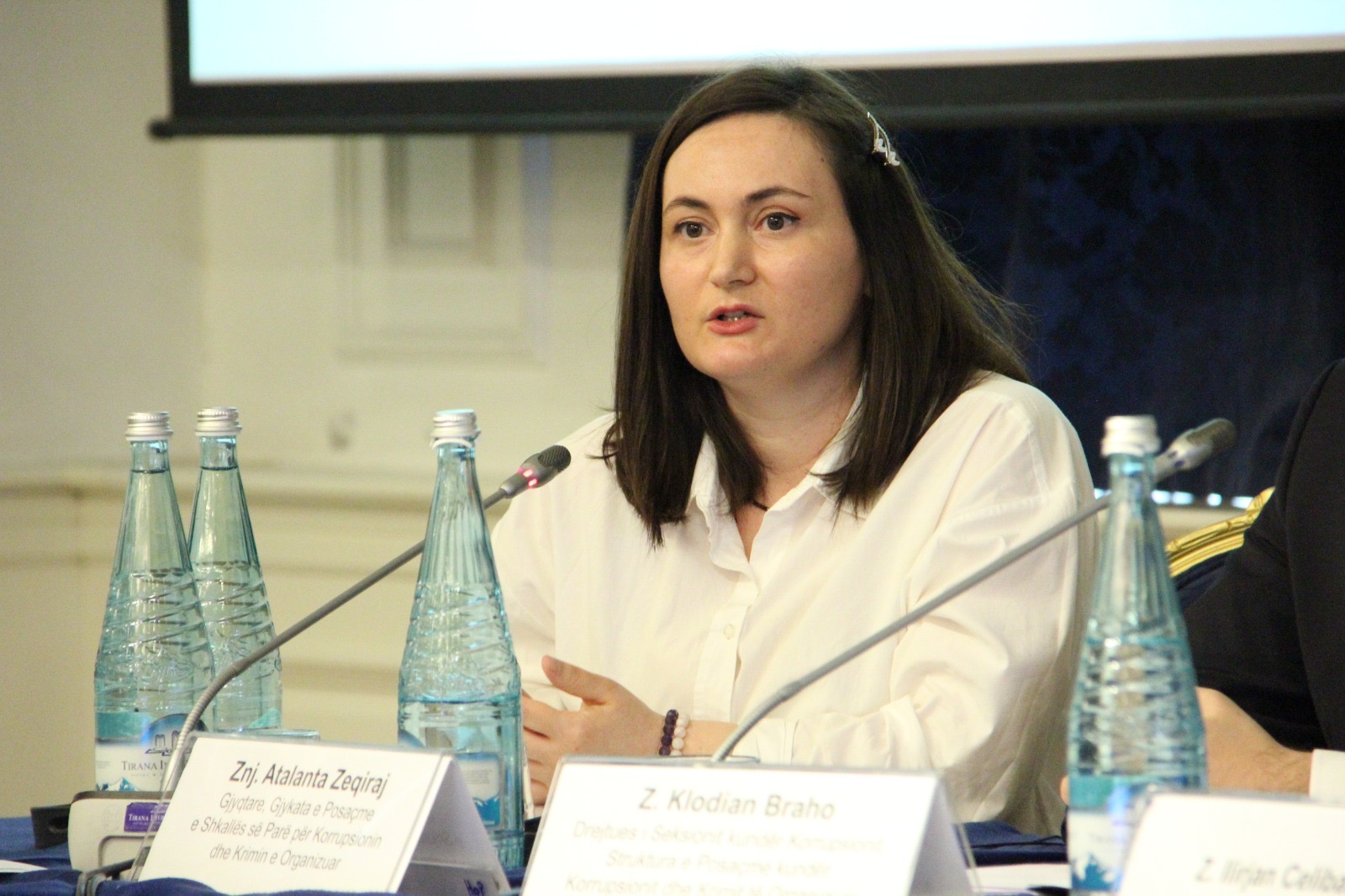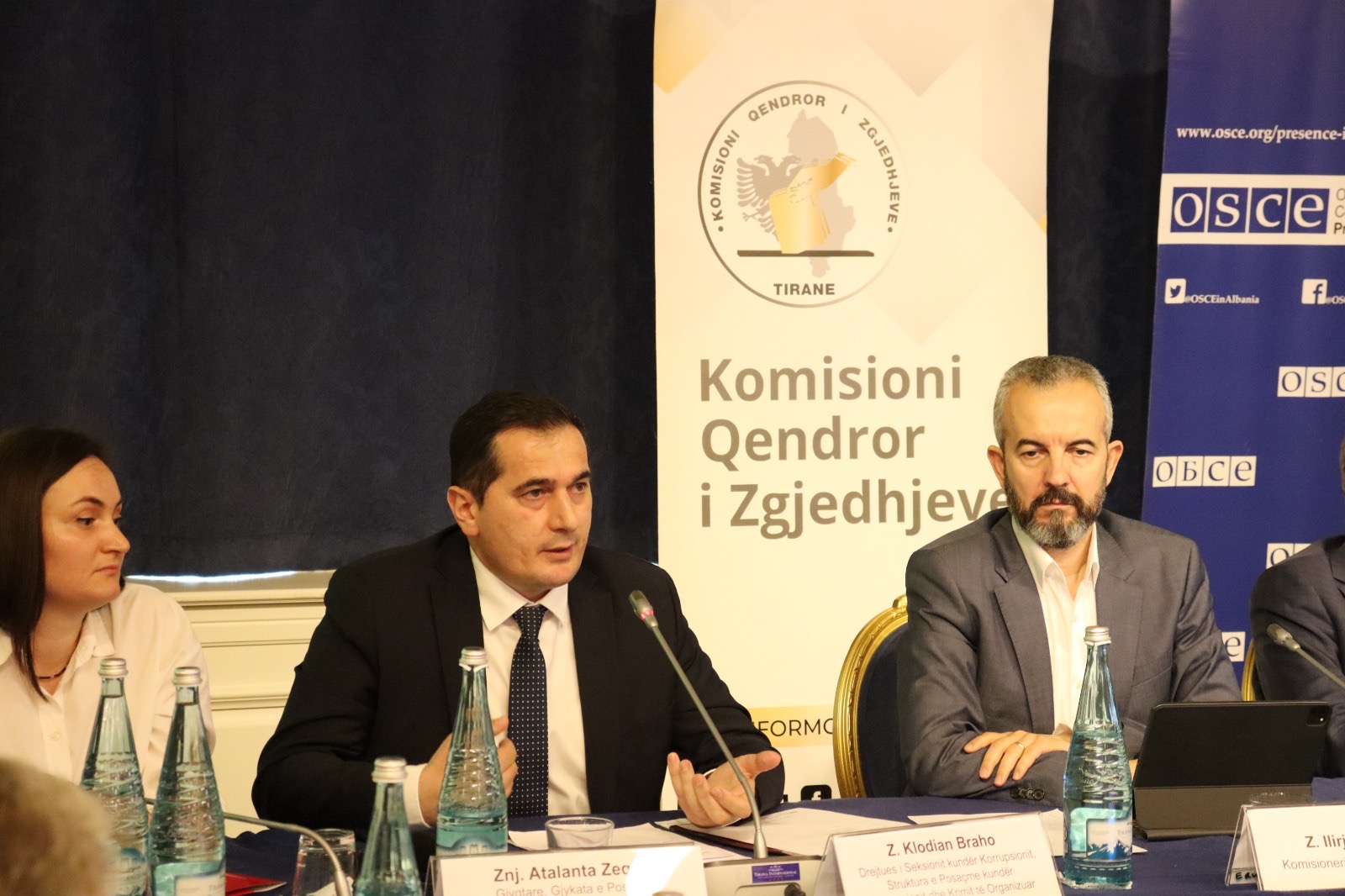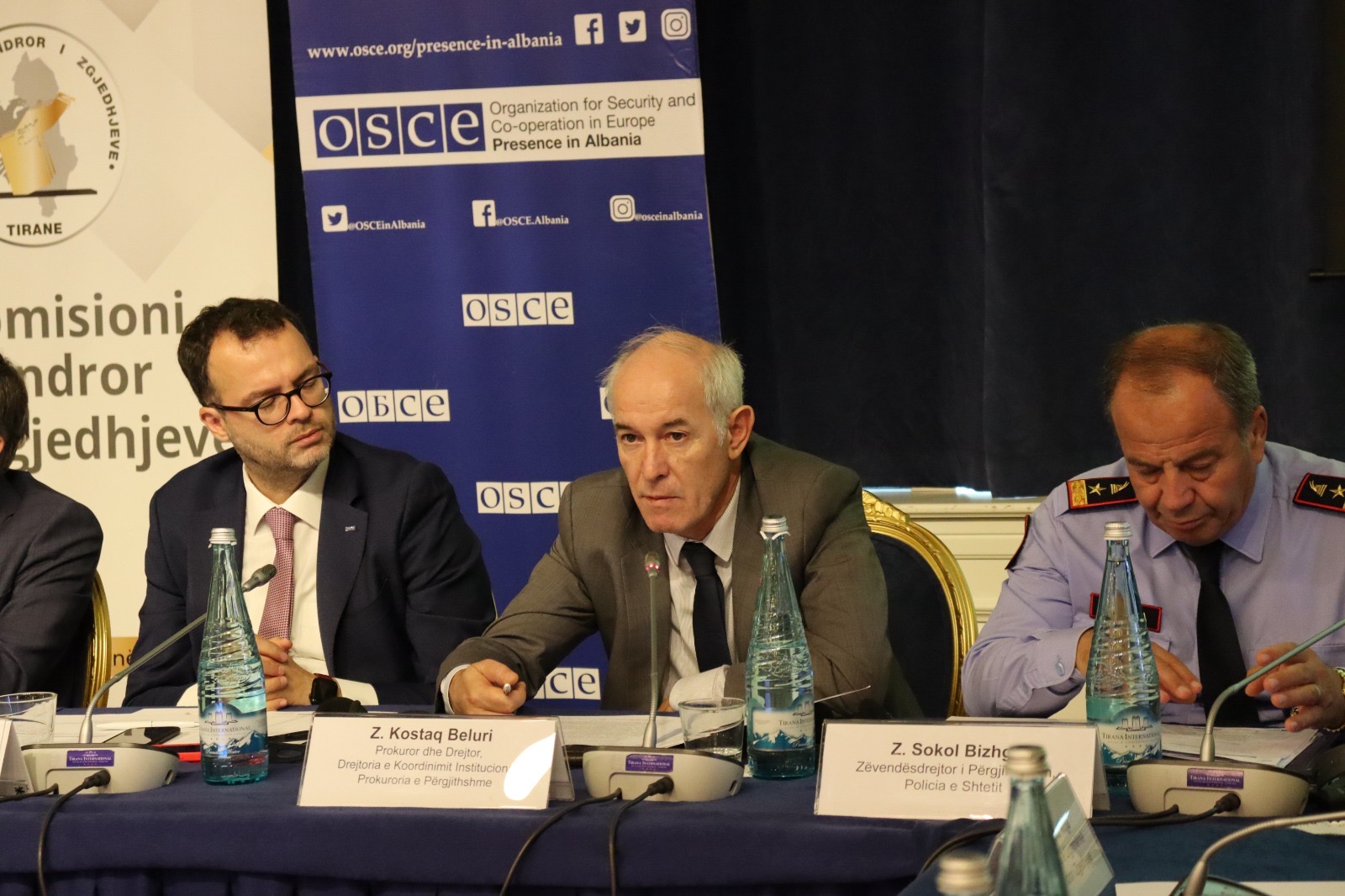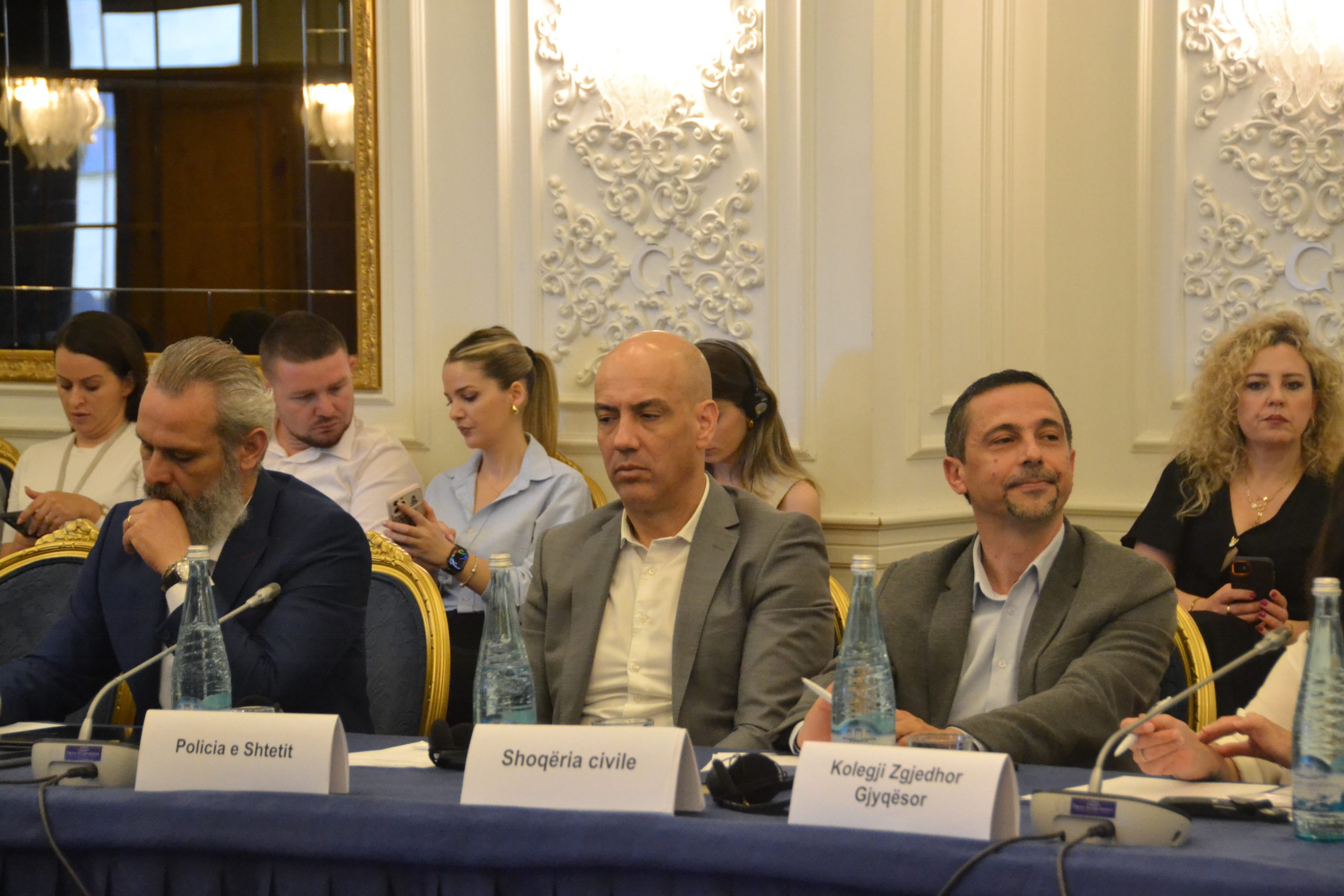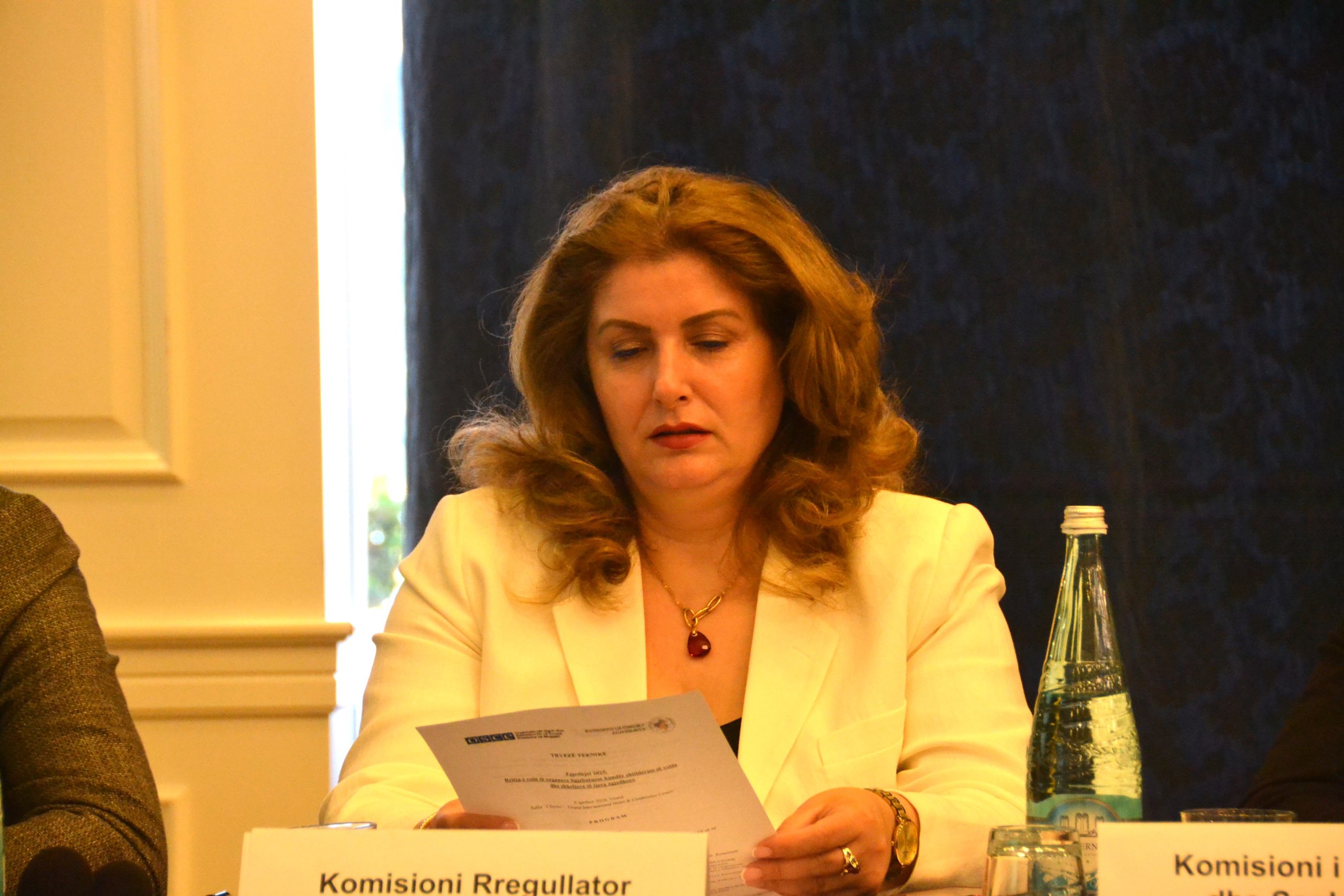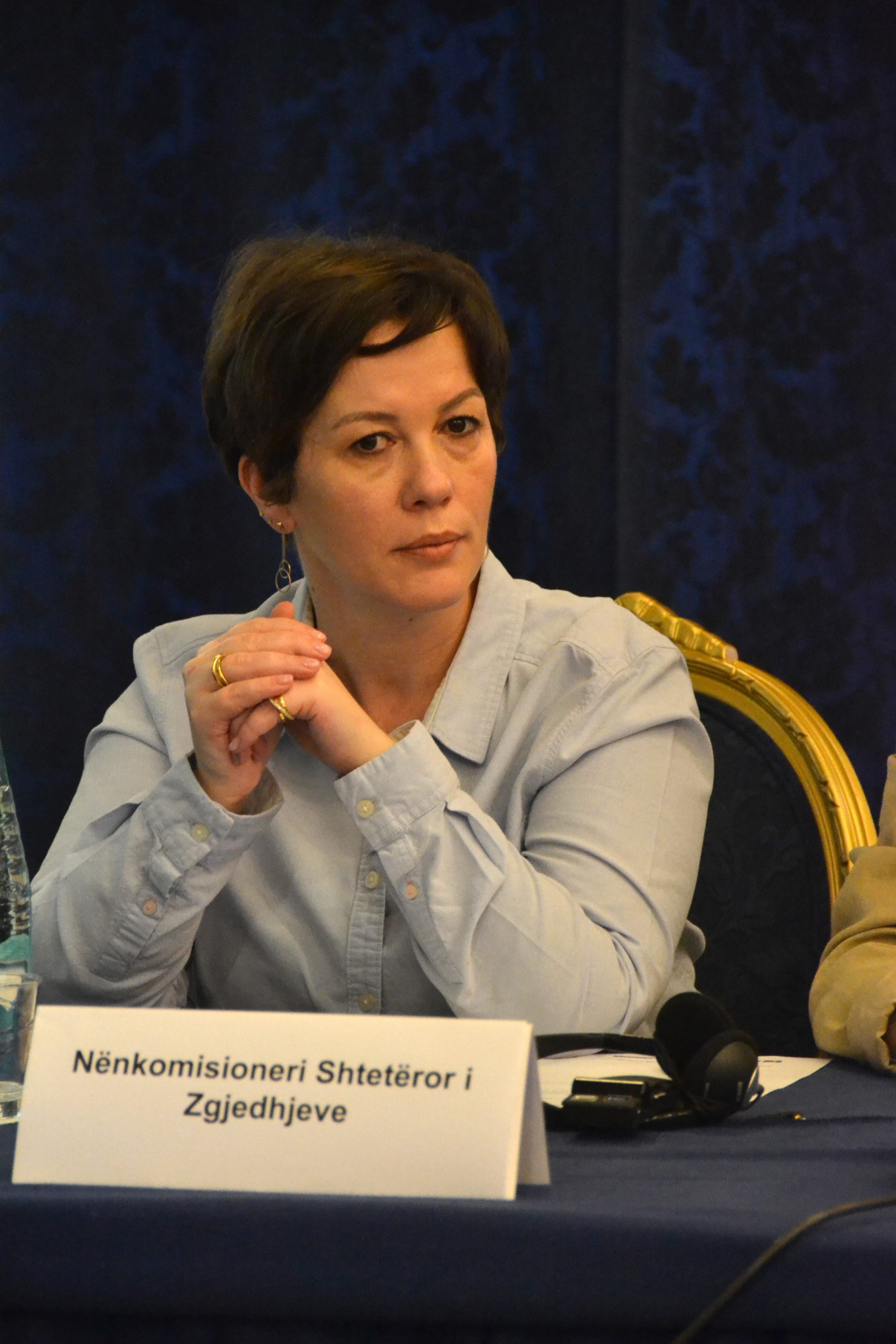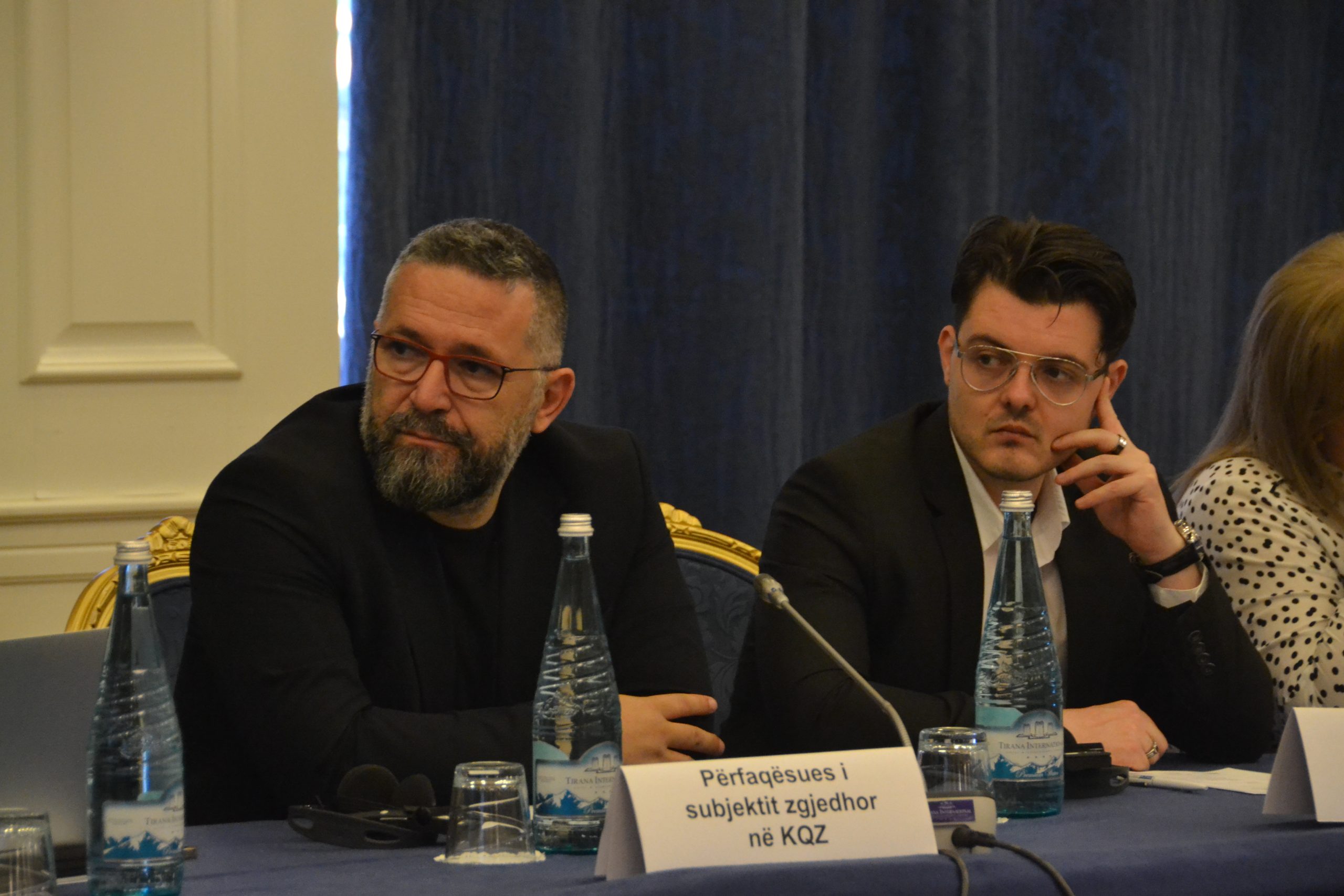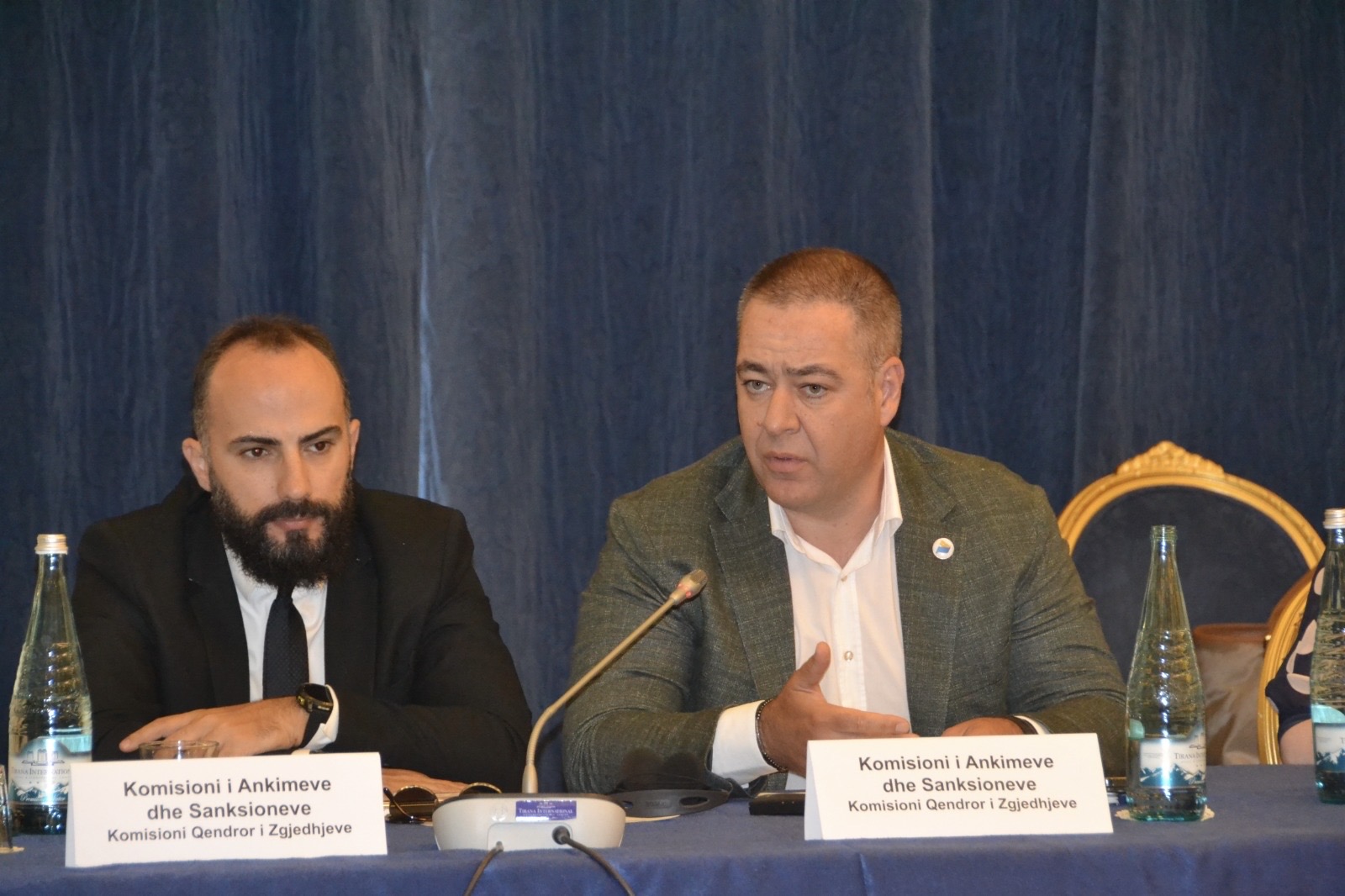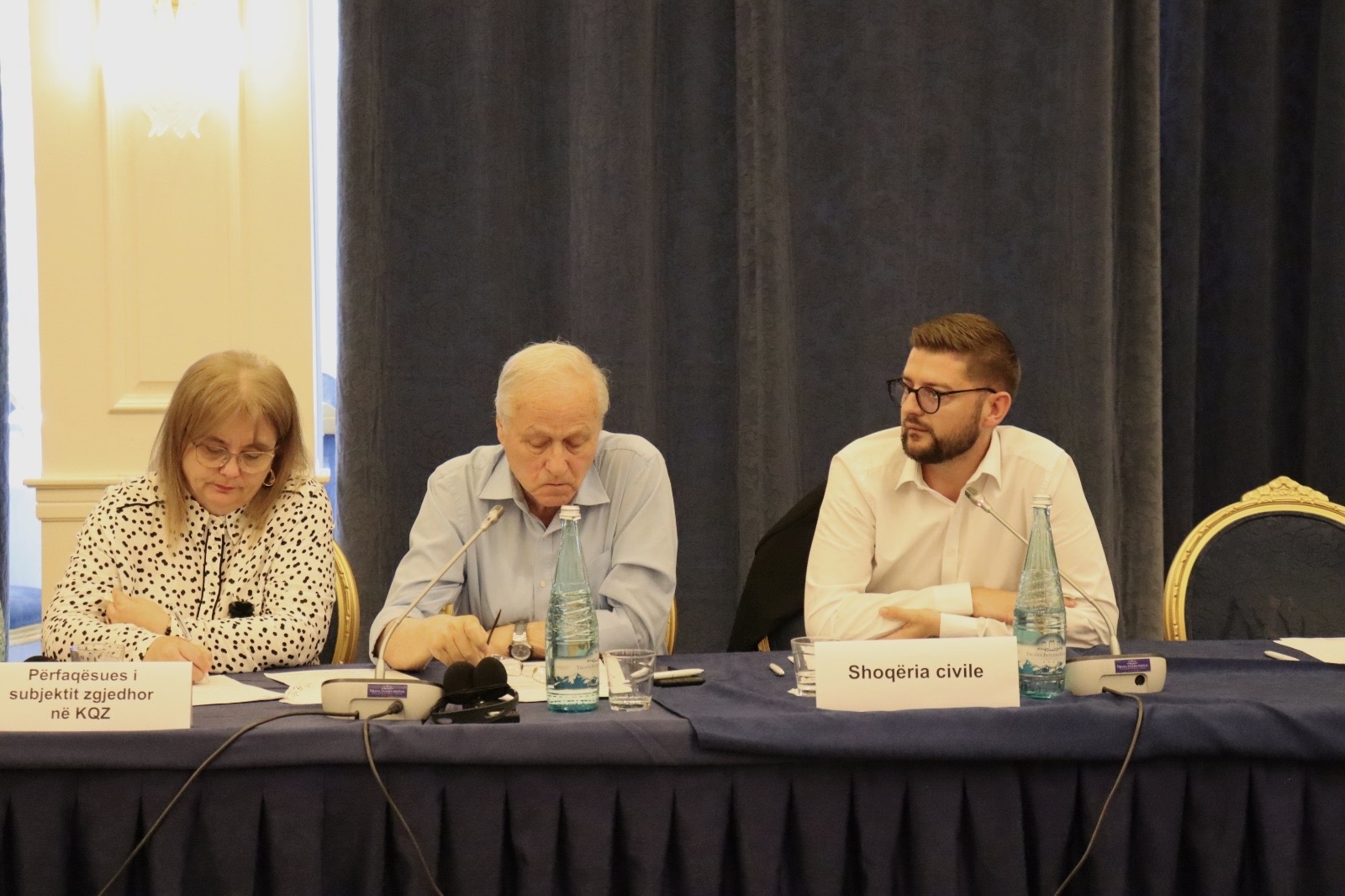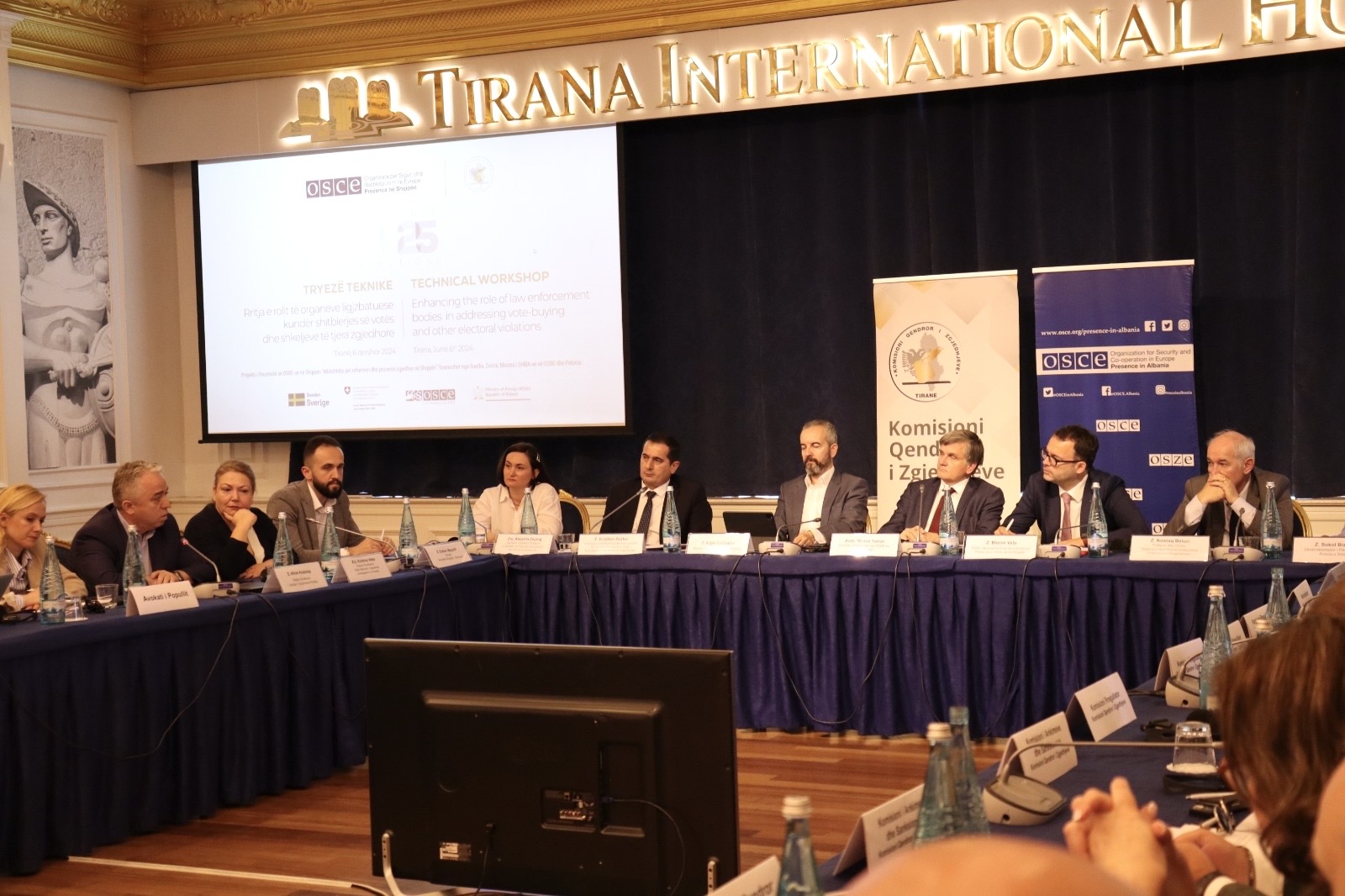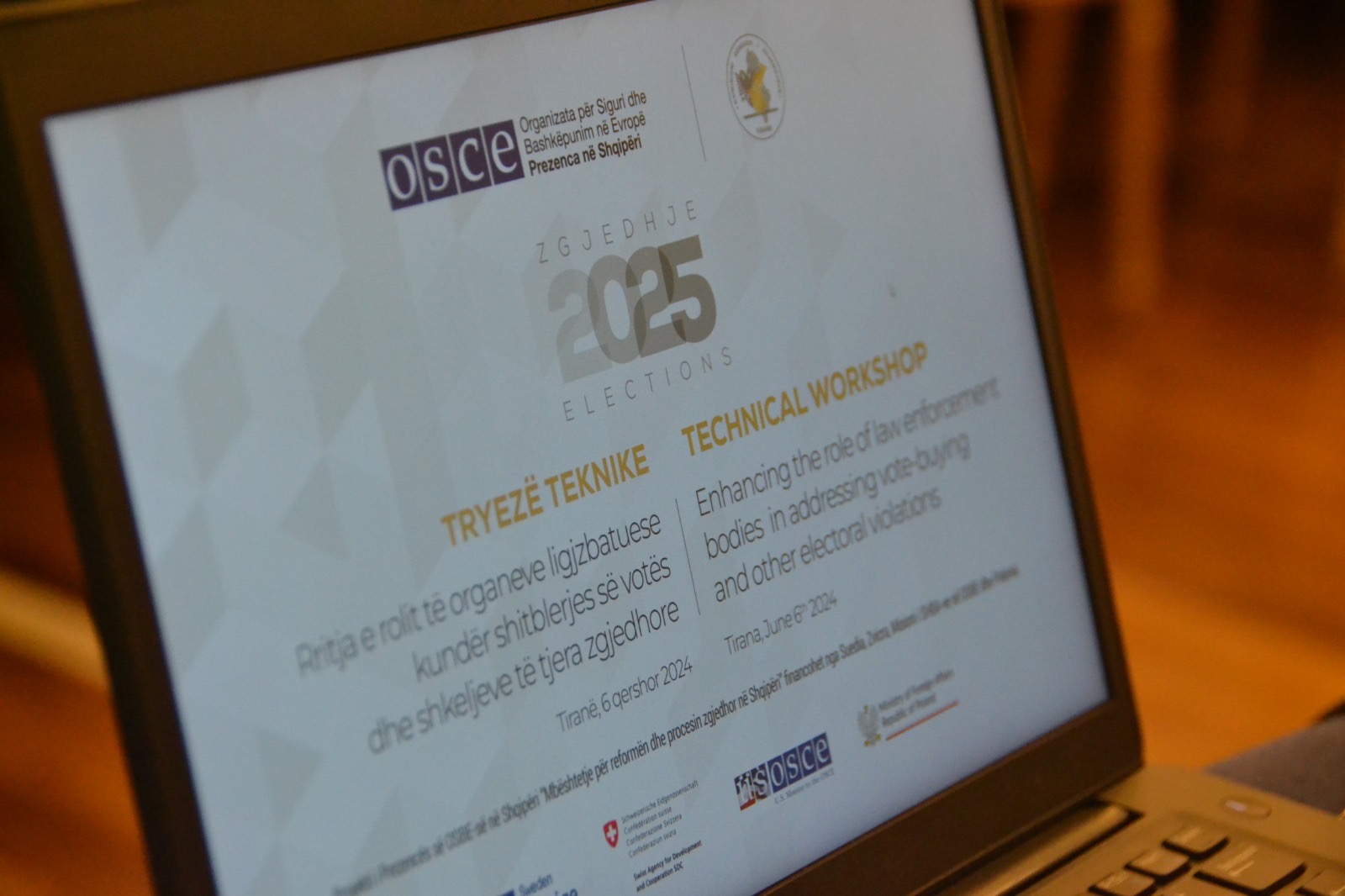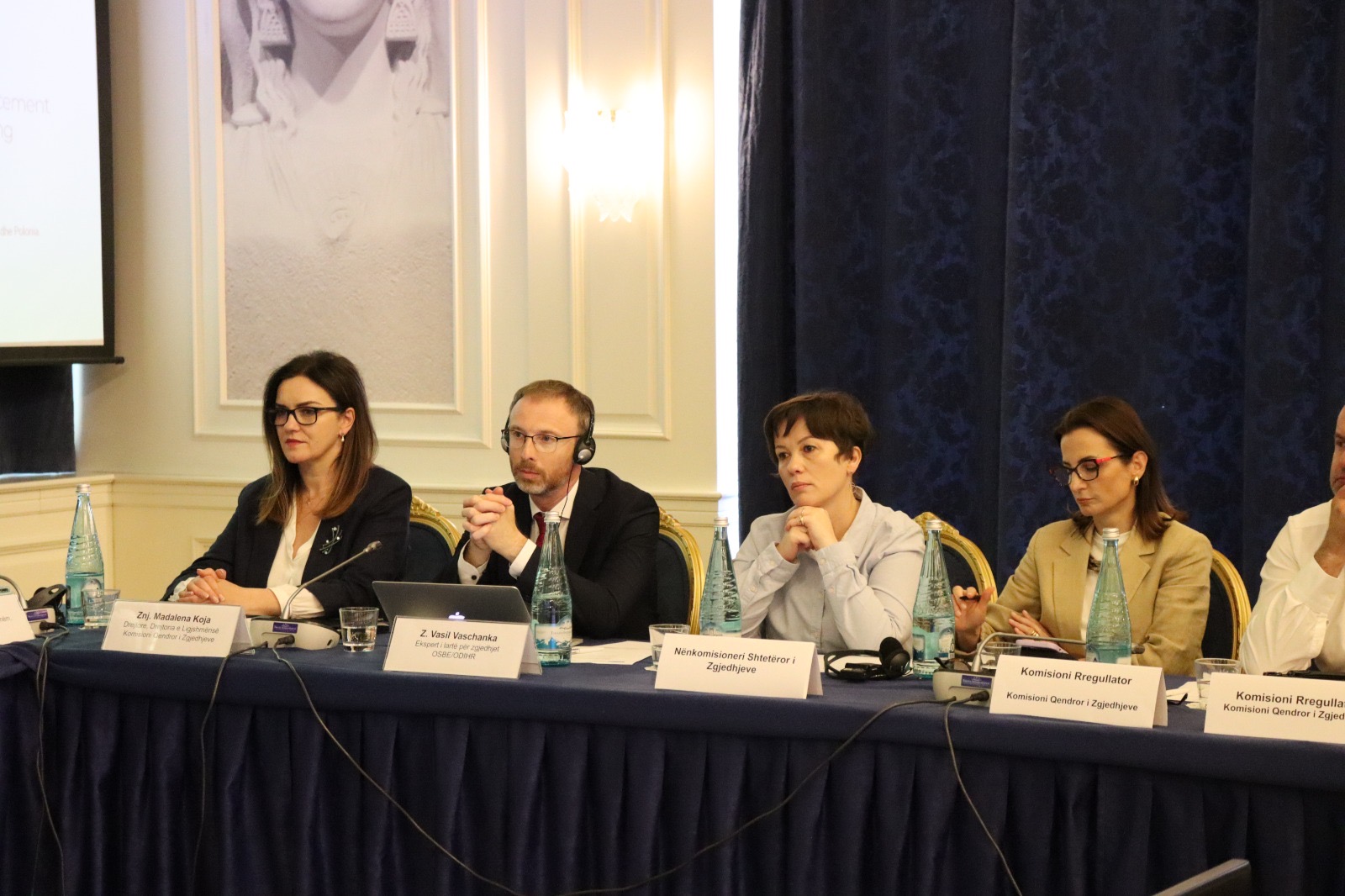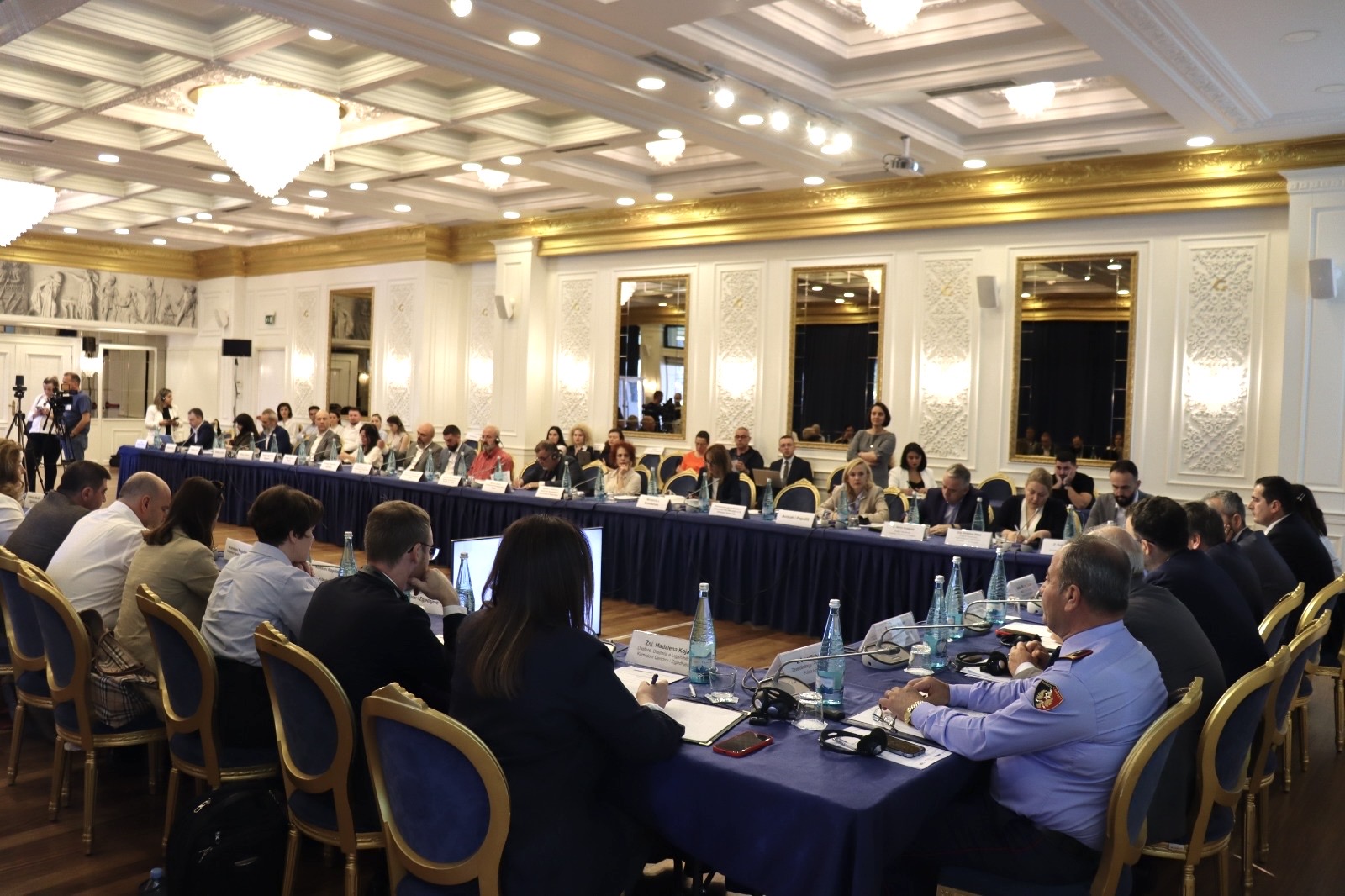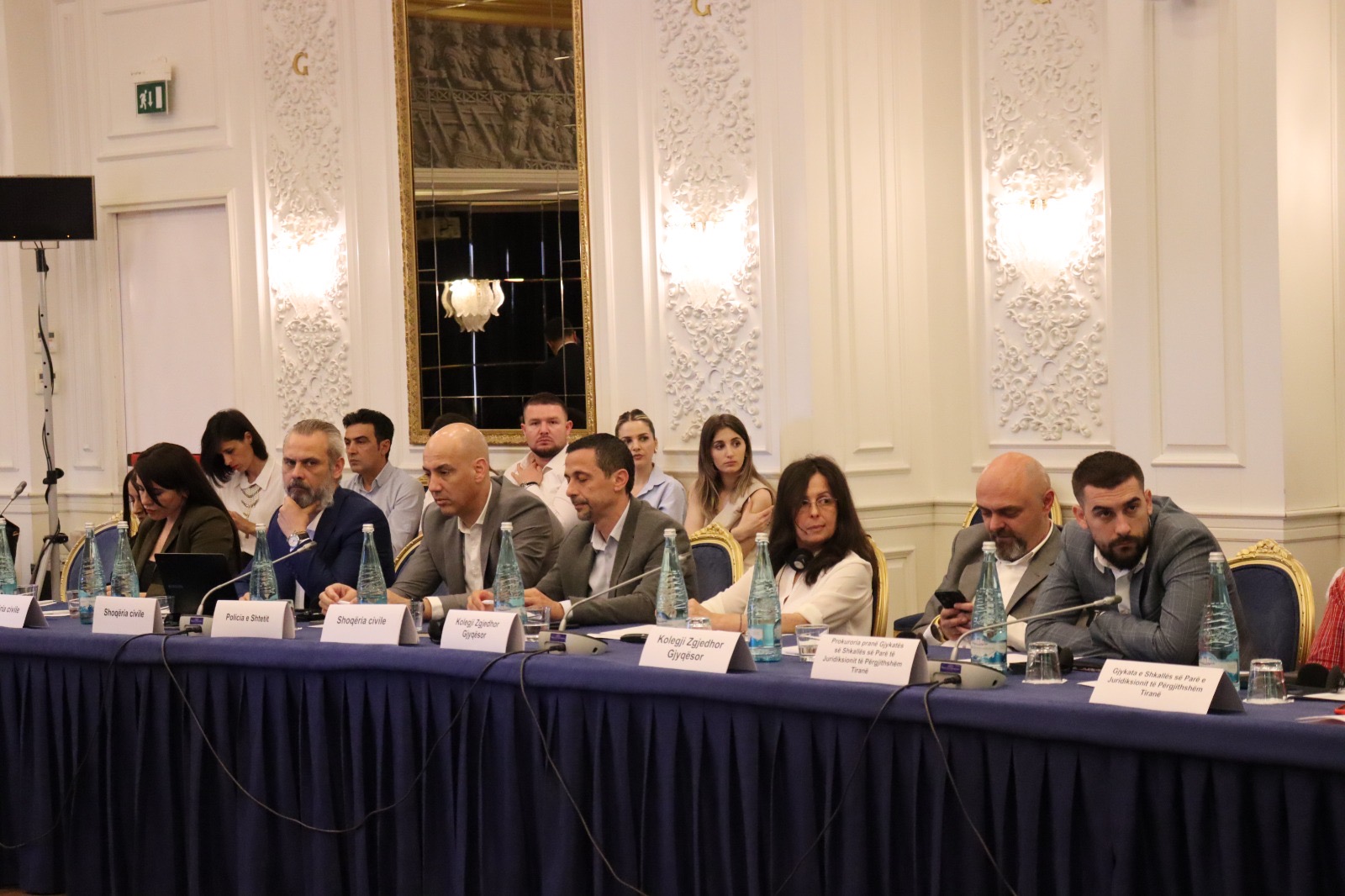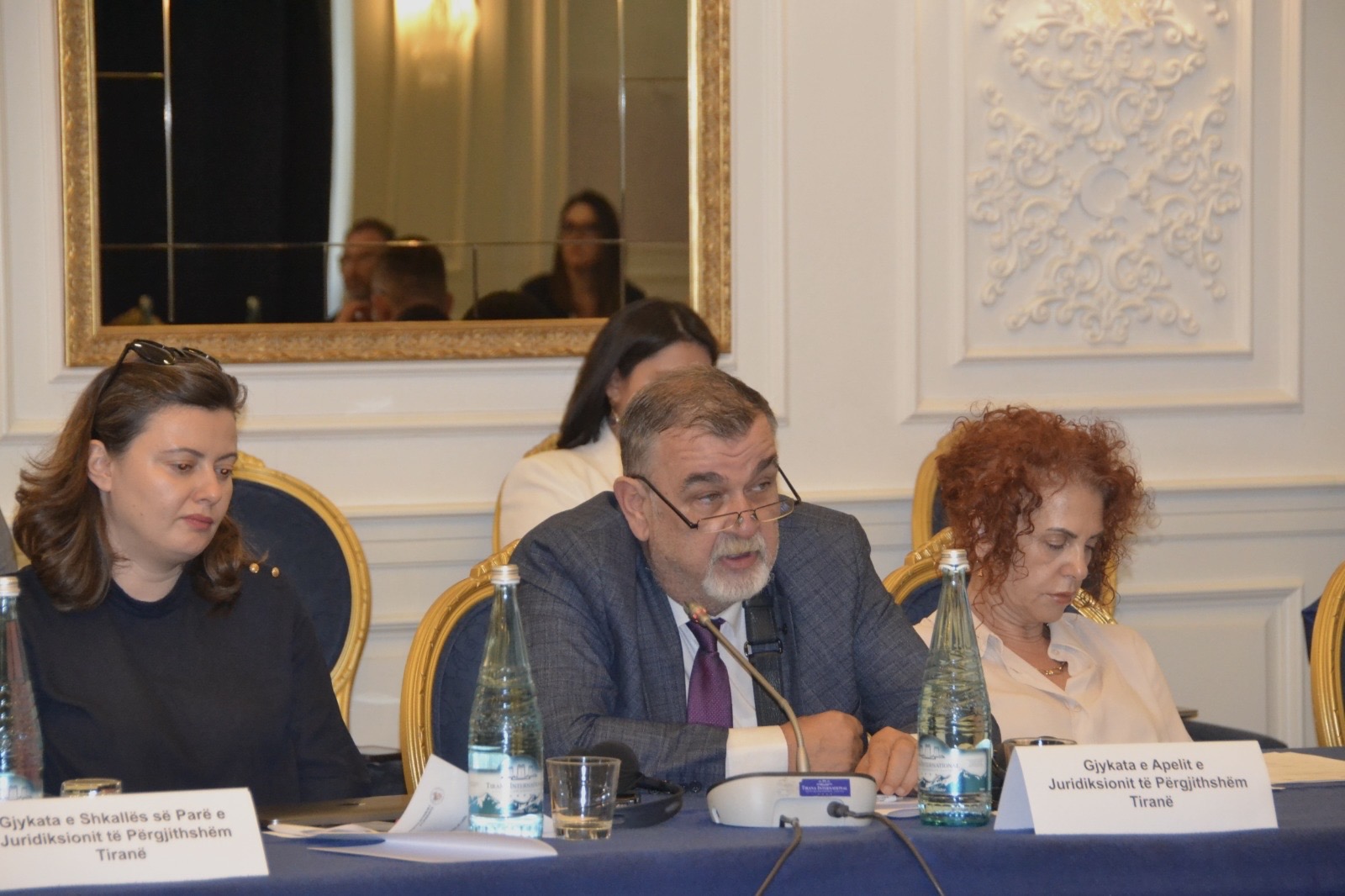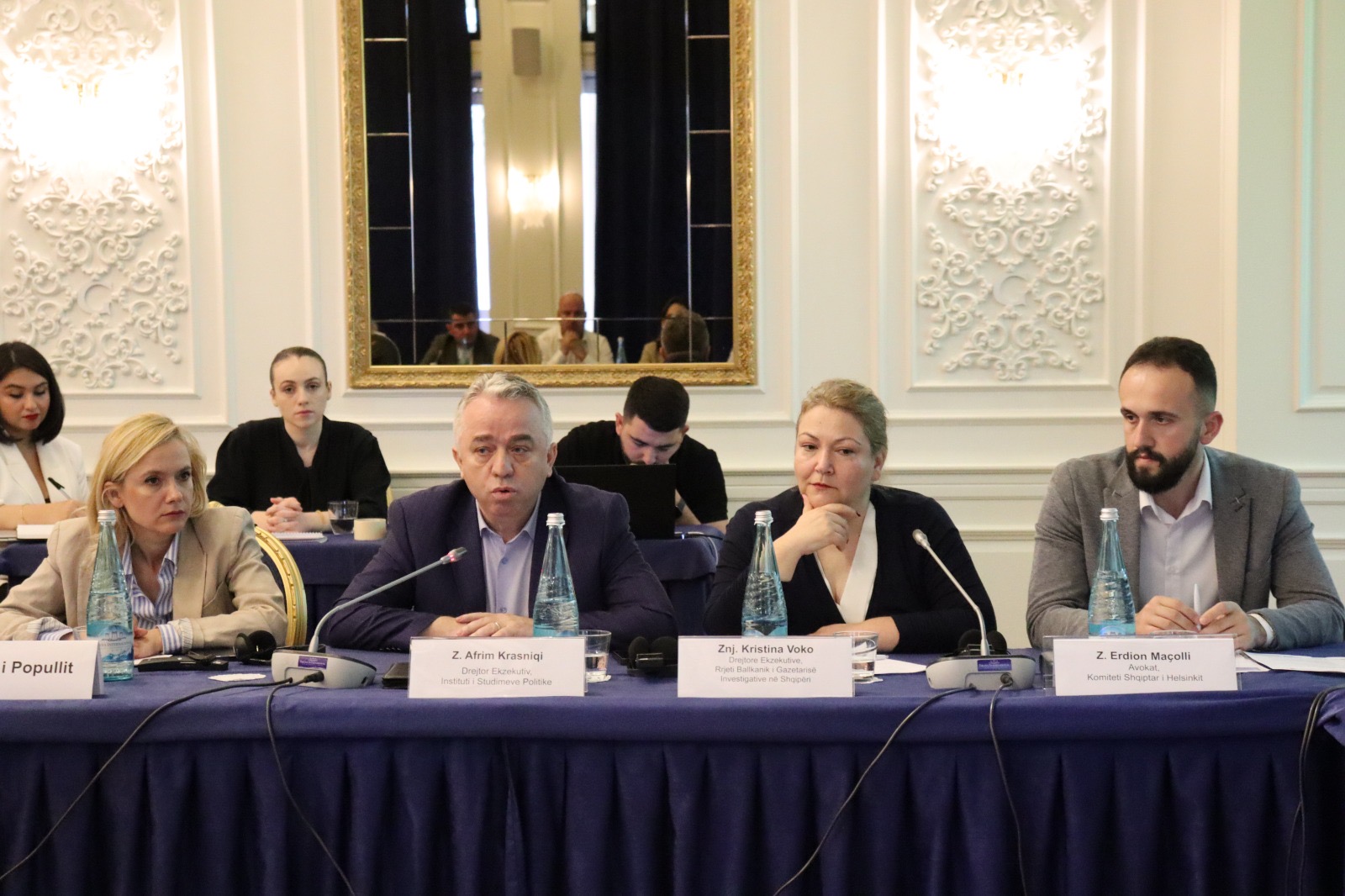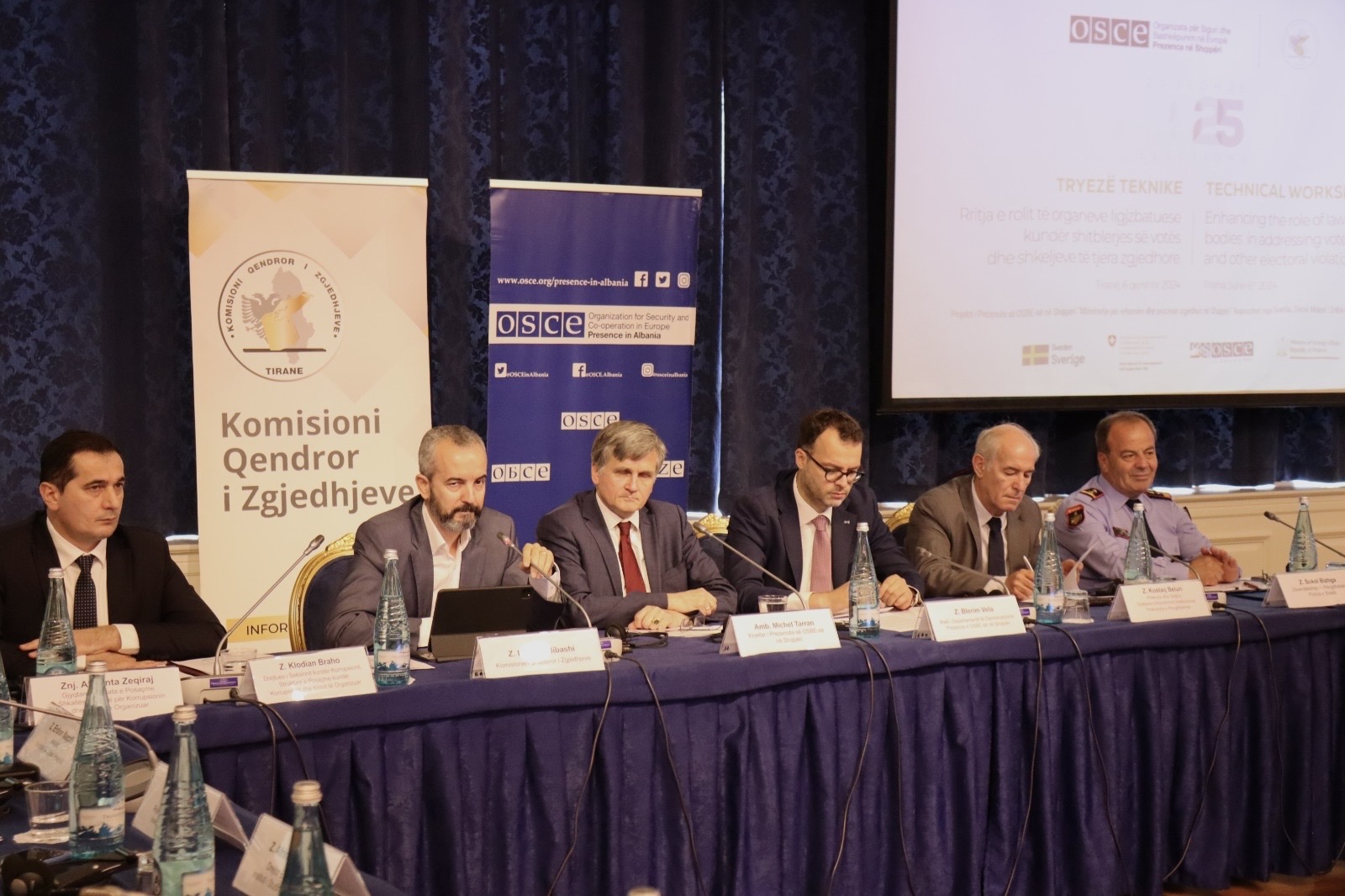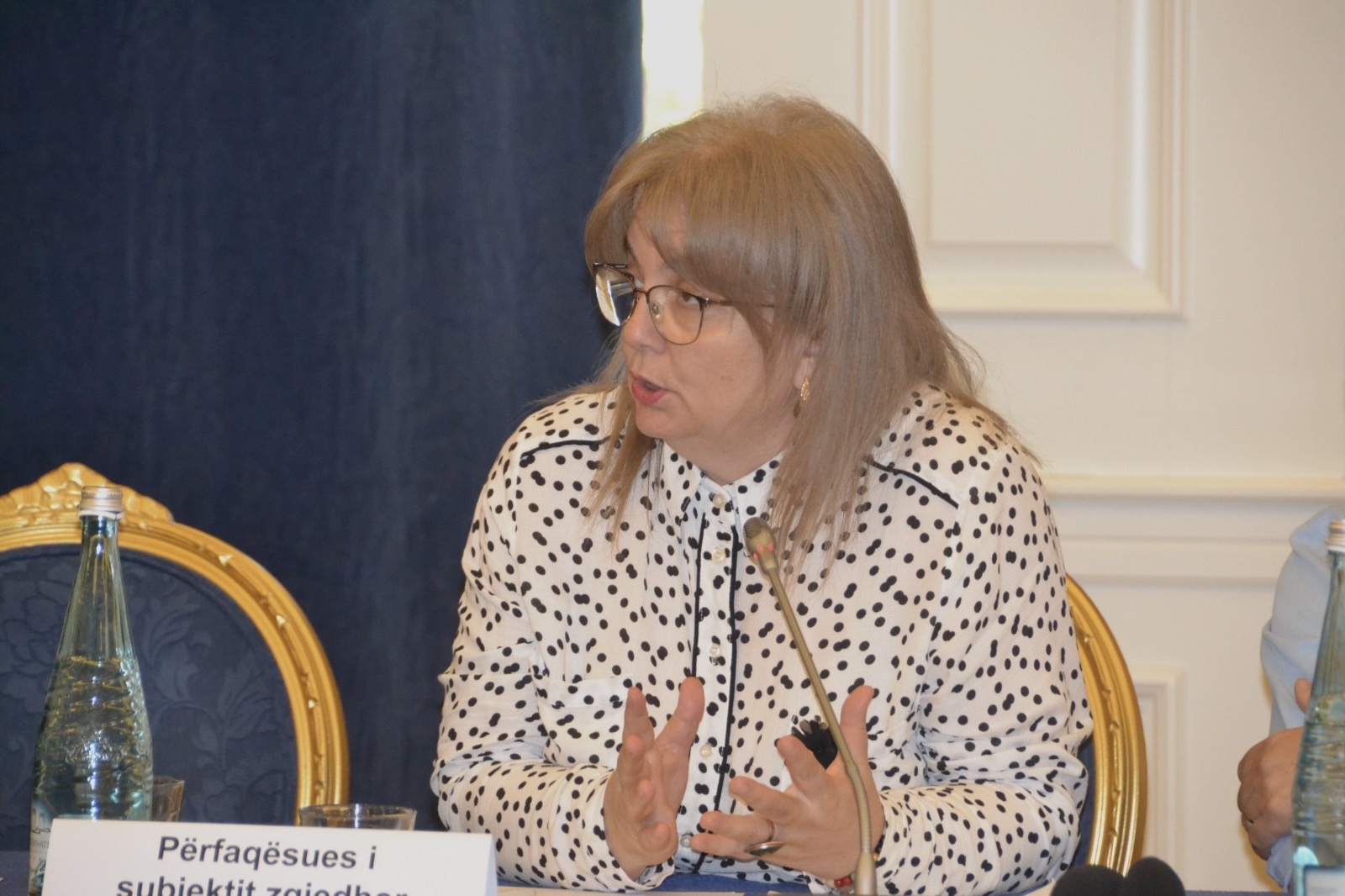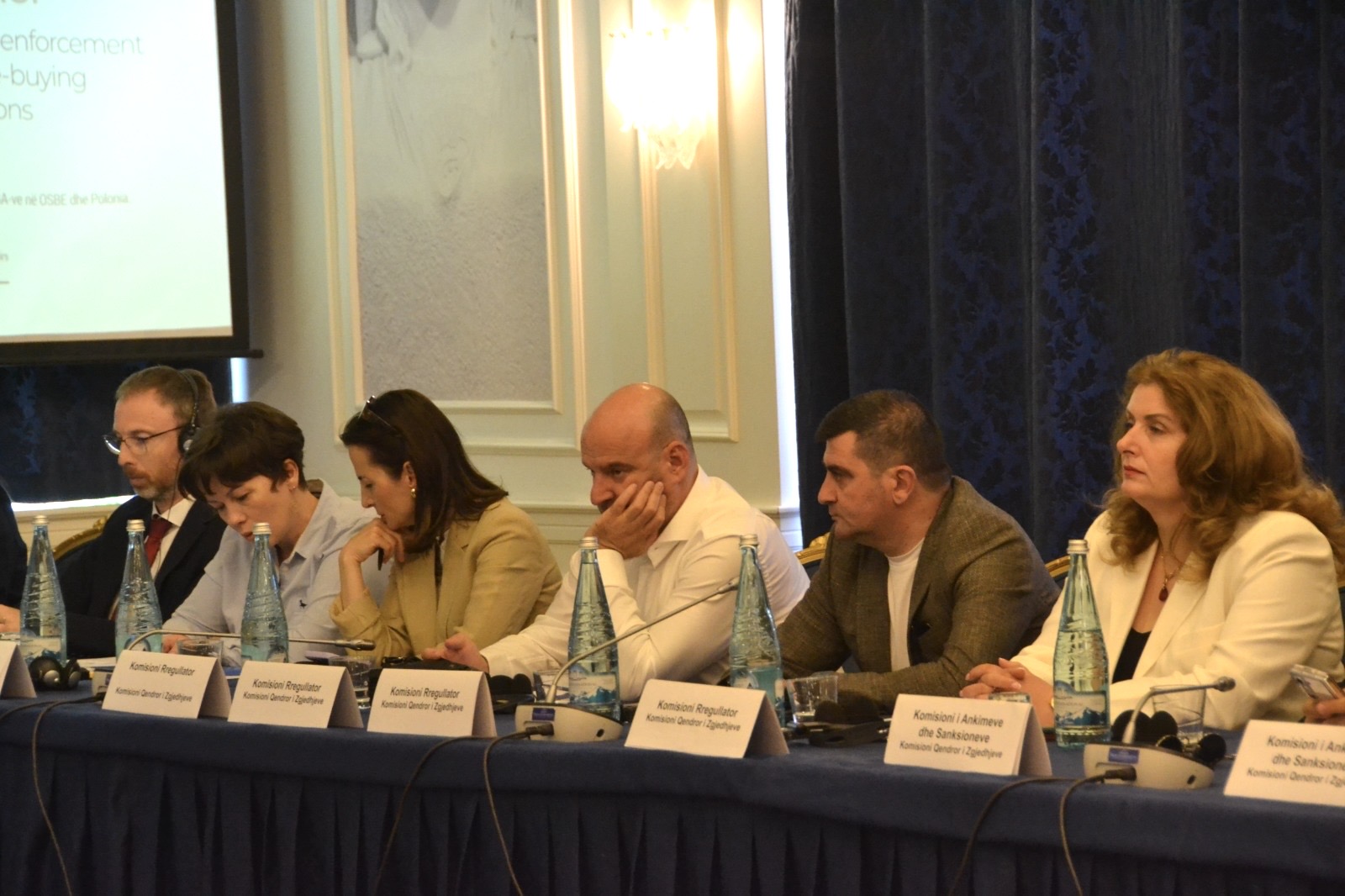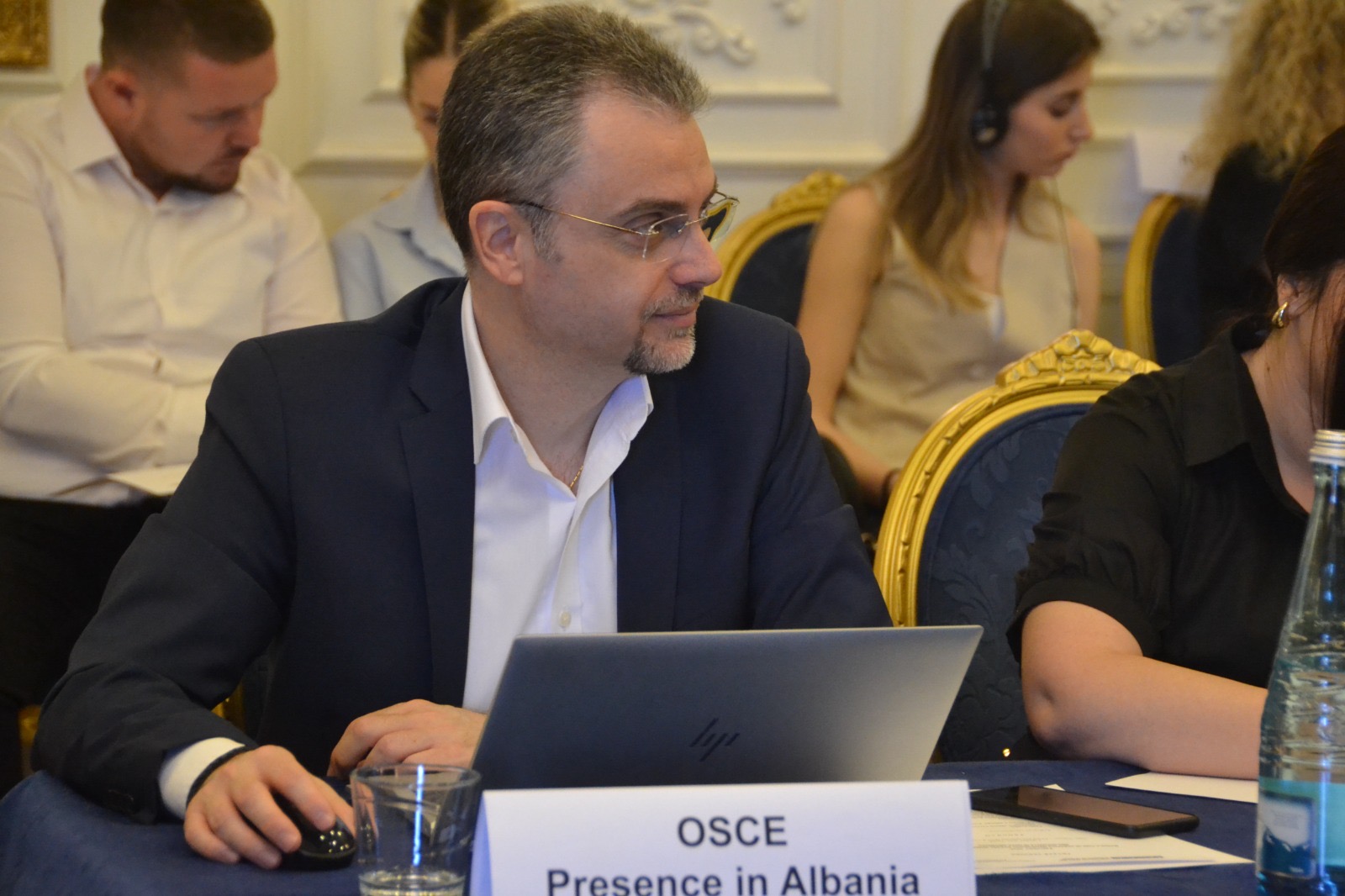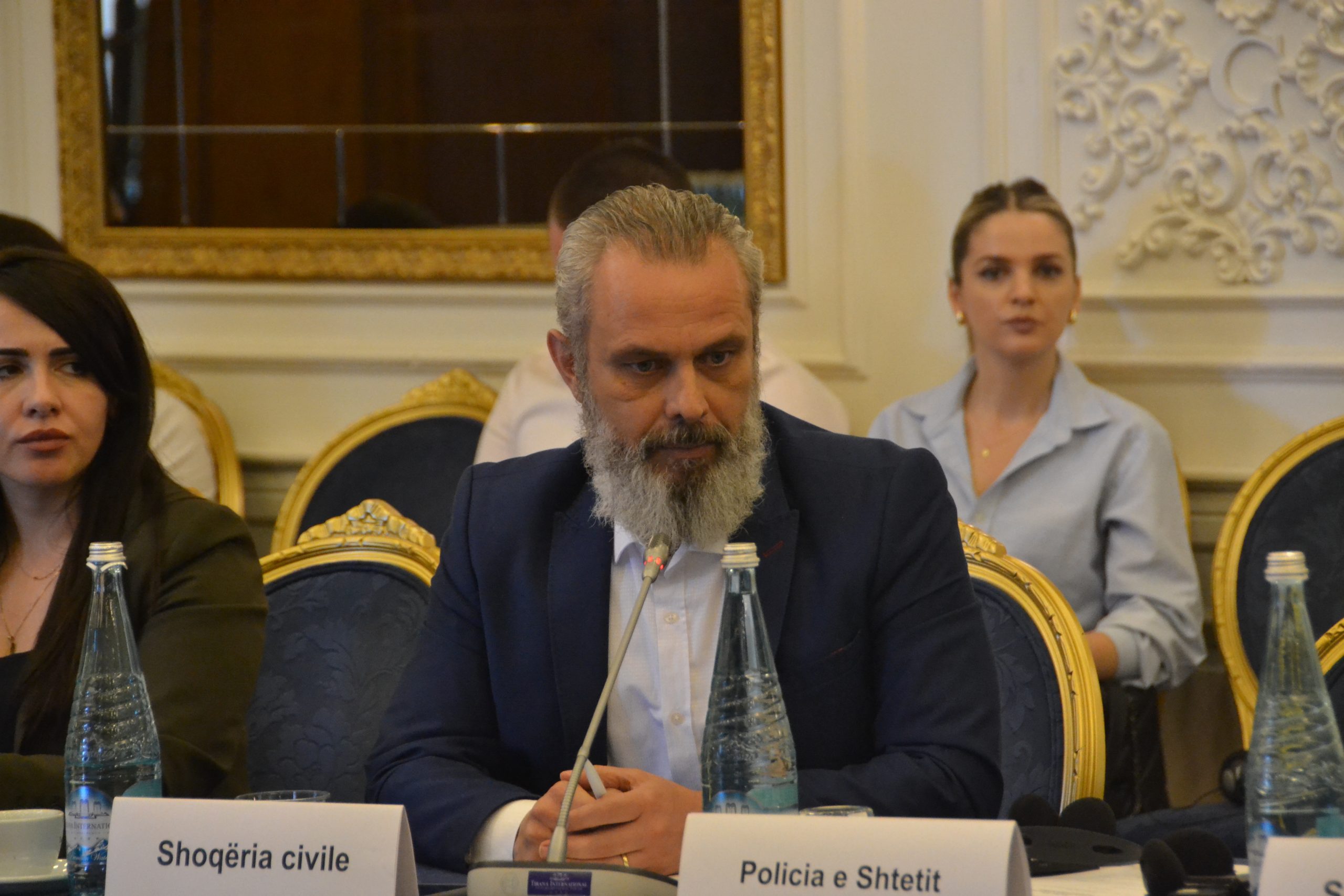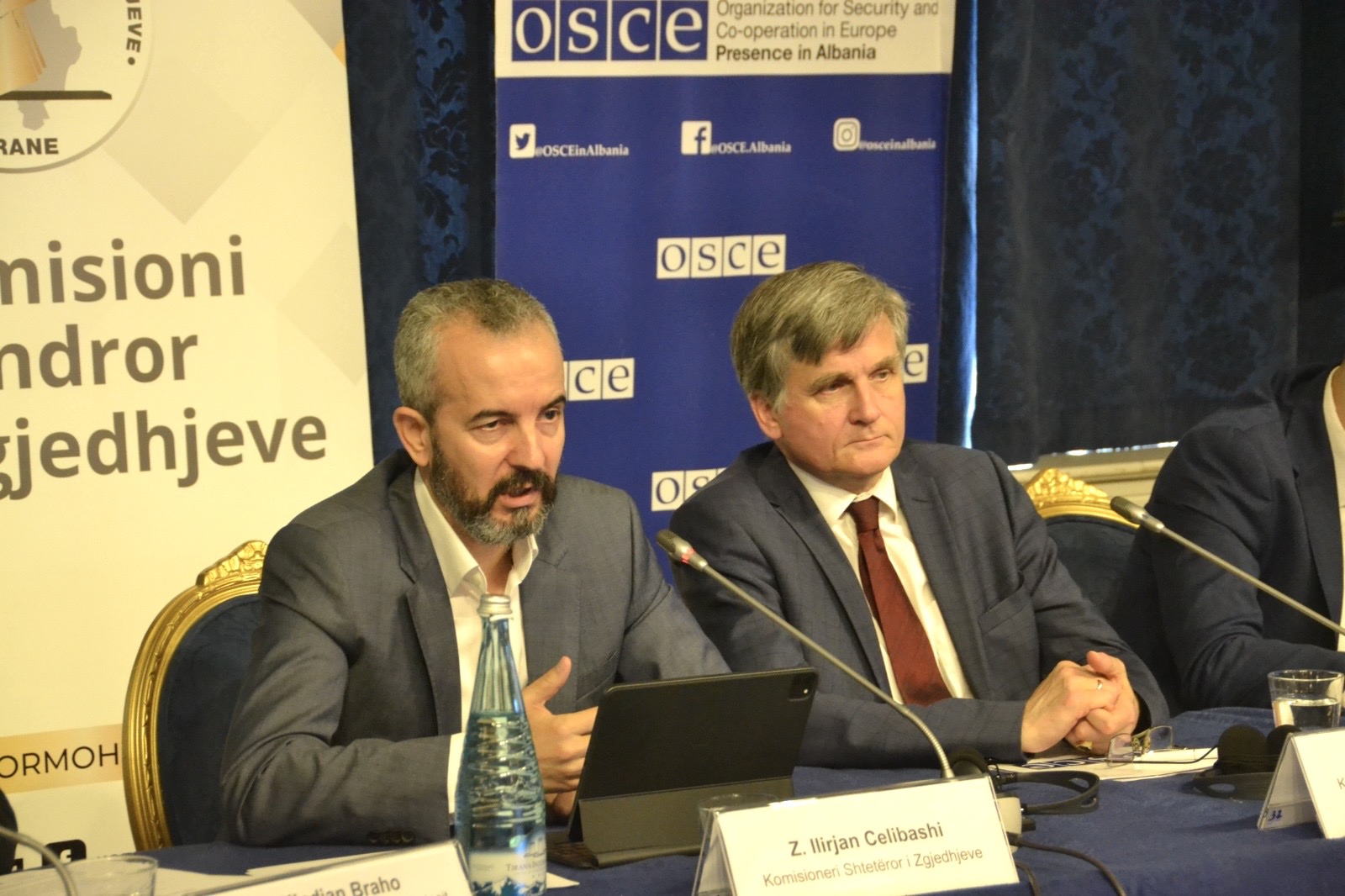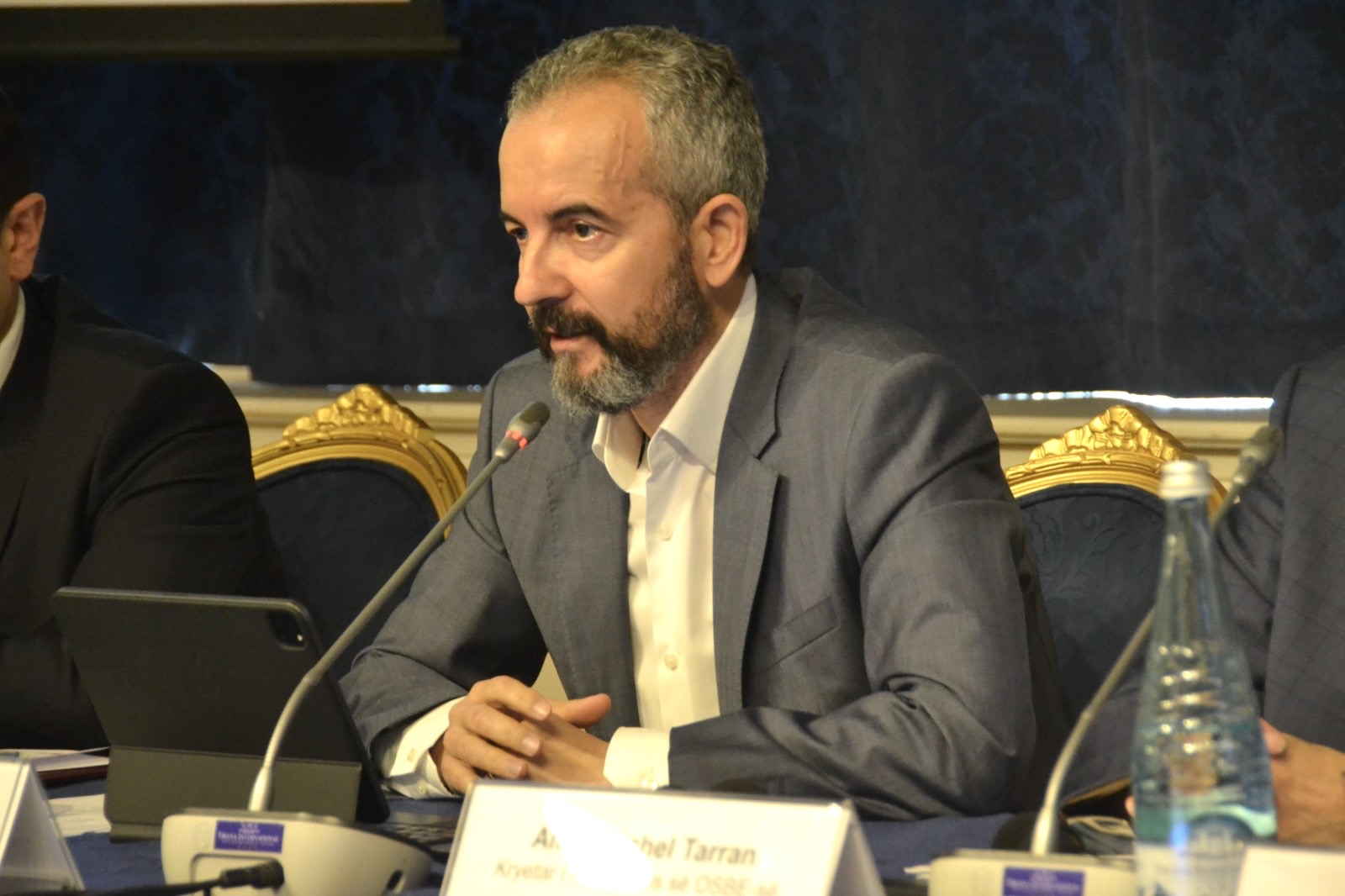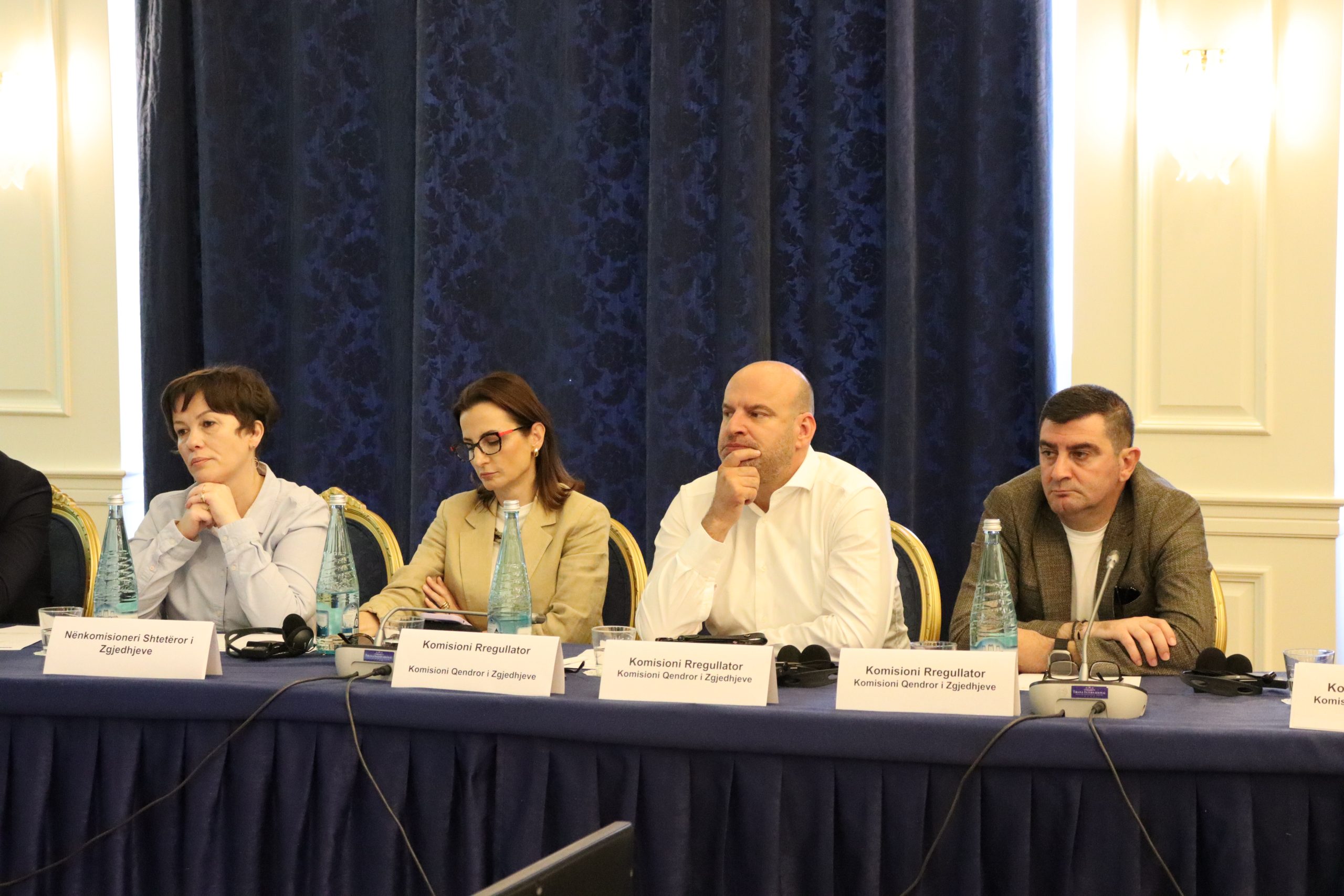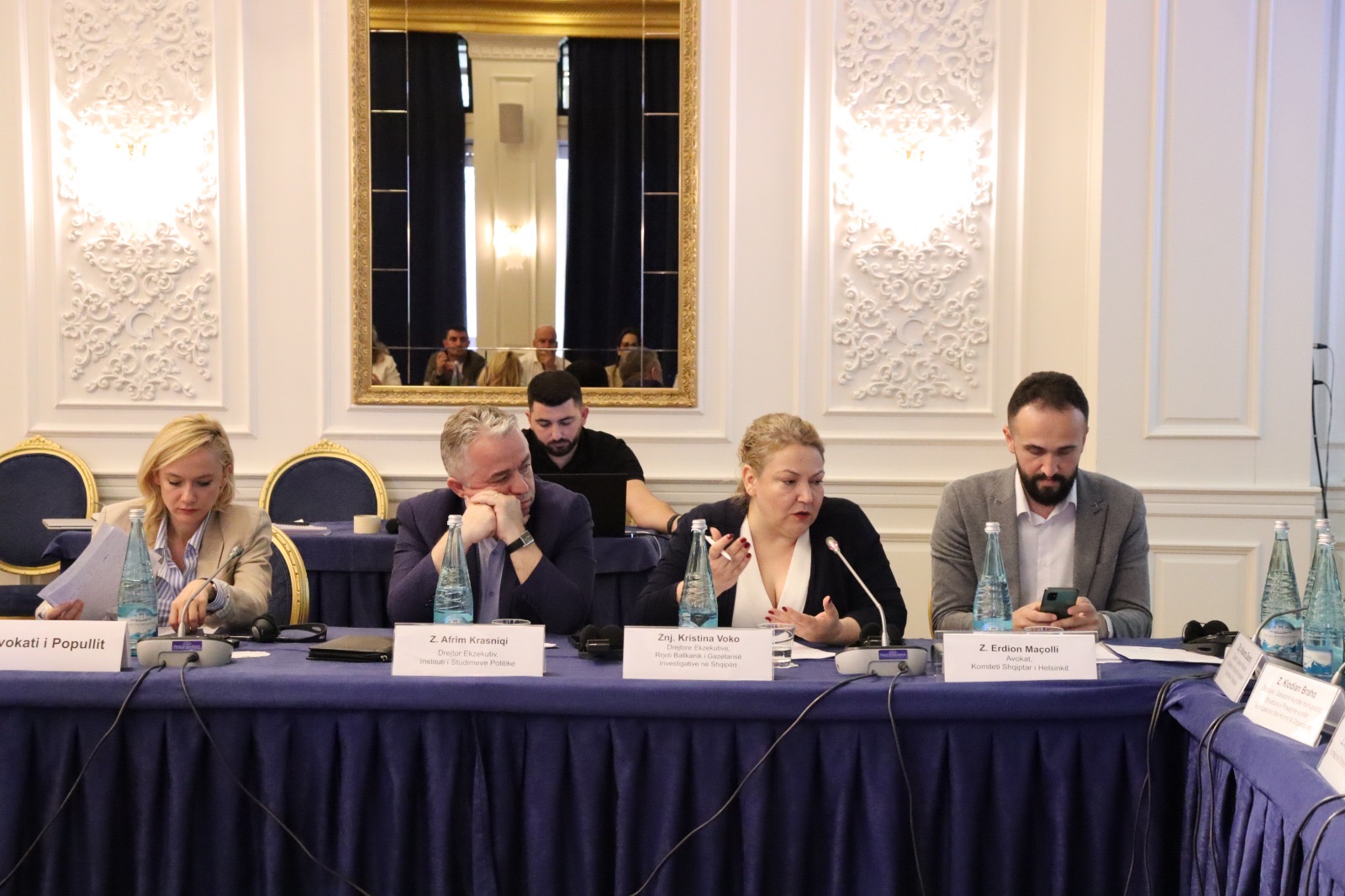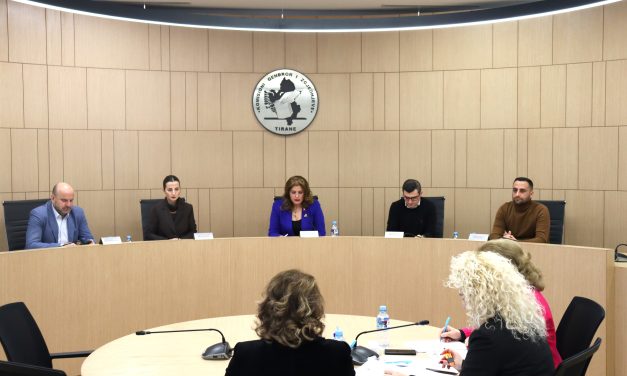In view of the 2025 parliamentary elections in Albania, the OSCE Presence and the Central Election Commission (CEC) organized a technical workshop on enhancing the role of law enforcement bodies in addressing vote-buying and other electoral violations.
Participated Mr. Klodian Braho from the Special Anti-Corruption and Organized Crime Structure (SPAK), Mr. Atalanta Zeqiraj from the Special Court Against Corruption and Organized Crime (GJKKO), Mr. Kostaq Beluri from the General Prosecution Office, Vice President of the Prosecutor’s Office, Director General of the State Police, Mr. Sokol Bizhga, representatives from civil society organizations and other institutions engaged with elections in the country.
The workshop served as a platform for representatives and experts from law enforcement agencies, other state and public institutions, civil society, media and international organizations to discuss potential improvements of investigation procedures and their timely implementation, encouraging citizen reporting, and increasing co-ordination between law enforcement bodies and relevant institutions.
“With the 2025 parliamentary elections approaching, now is the right time to consider the OSCE/ODIHR recommendations and address these issues, to enhance the performance of state institutions in tackling vote-buying and other electoral violations”, said Ambassador Michel Tarran, Head of the OSCE Presence, opening the event. “The Presence welcomes any initiative that aims to prioritize countering electoral crimes ahead of next parliamentary elections. We stand ready to provide support as needed”, he added.
State Election Commissioner, Mr. Ilirjan Celibashi said: “We are at the moment when we need to understand how to improve election integrity issues by addressing the problems that harm such integrity in the best way possible. The CEC has its role to play, but much needs to be done by other institutions as well”.
Workshop discussions focused on the findings of the OSCE/ODIHR election observation reports and their recommendations for enhancing the integrity and fairness of future elections. Participants analyzed the effectiveness of practices in addressing electoral violations in the last two elections, following the consensually approved legislative changes of 2020, identifying successful measures and areas for improvement. They also underscored the necessity for continuous dialogue and co-operation among all stakeholders to ensure a transparent and credible electoral process, and stressed the importance of increasing public awareness about the consequences of vote-buying and other electoral violations.
The workshop concluded by noting achievements and challenges related to institutional efforts to address electoral violations, which require timely implementation of the discussed recommendations and work collectively towards a more transparent and fair electoral system in Albania.
